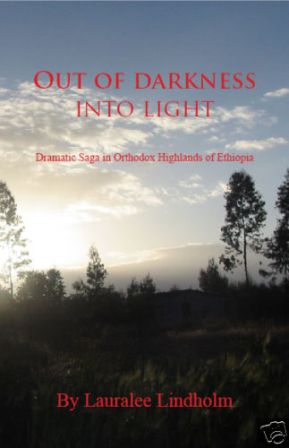|
restoring our biblical and constitutional foundations
|
| welcome |
July 2011 Blog Archives
Saturday, July 30
1:56 PM More pix. Becky's ribbon, a gift from Jon Glass, says "It's a boy!"
Welcome to America, son!
More hugs ...
... and excitement.
Many of these greeters know Nigusse from their trips to Ethiopia.
Sudie (far right) served in Alaba with us.
Brother Rick, a medical doctor, ministered in our health clinic in Burji.
Enjoying a first meal together in Durham, NC.
Alan Knox and Jon Glass know Nigusse well from their work in Ethiopia.
Back at Bradford Hall, Nigusse had a gift for his mom ...
... as well as his dad.
Yes, Nigusse, we takes of lots of pictures in our family!
12:36 PM Isn't technology wonderful? Becky and I I just spoke with brother Desta in Alaba. Desta is one of the local church elders with whom we have worked very closely these past several years. We are honored and humbled that the church in Alaba should have entrusted Nigusse into our hands. We promise to do our best to take good care of him while he is here!
12:22 PM Last night and this morning I taught at Lake Gaston, an hour's drive from the farm. About 35 Chinese young people have gathered for intensive Bible study.
I'm back home for the afternoon to spend some time with Becky and Nigusse before teaching again tonight and tomorrow morning. In the background I can hear Bec and Nigu speaking Amharic with each other. I think they are on the phone with someone in Ethiopia. Music to my ears. Who knows -- maybe Nigu can teach me Amharic while I teach him Greek. Tonight I will be sharing how Becky and I do missions -- Matthew 9:36-38 is my text. Then I will show slides of what God is doing in Ethiopia.
Life sure is busy, and it just became busier with Nigusse's arrival. But when you are doing what God wants you to do with your life, there is a joy, there is a passion, there is a power, there is an enthusiasm, there is a peace that is simply inexplicable. Jesus said, "My yoke is easy. My burden is light." How then can we ever complain? It's what I call "restful rushing." Inward refreshment in the midst of incessant activity. There is nothing like being co-yoked with Christ.
12:04 PM Here's an email Becky sent out last night at 9:13 pm:
We just walked in the door! Nigusse's so exhausted he can hardly walk straight....it's 4am his time. He came thru Immigration without any problem; he managed the airports without difficulty; no lost luggage.
God gave us a really, really great time of greeting him & sharing a supper together! About 30-35 folk came to the airport. Passersby were all caught up in the event. Lots of tears of joy at the Lord's goodness to us!
The next few days will be getting settled & oriented to home. Sunday will be introducing him to Bethel Hill church ... and next week we'll start planning for school, getting supplies, etc. We covet your continued prayers, and thank you for sharing this birthing. (I was even given an "It's a Boy!" button to wear at the airport!)
God is good!
Amen? AMEN!!!!!!!
BeckyLynn
Nigu is now settled into his upstairs bedroom, got a good night's sleep, and is eager to see his brothers and sisters at The Hill tomorrow morning. As Becky said, we do covet your continued prayers for Nigusse. I cannot imagine how huge the adjustment must be for him.
Thursday, July 28
4:32 PM We've been making signs and blowing up balloons for tomorrow's signal event at RDU. I just finished drawing this large sign:
It says Yesus Getano, "Jesus is Lord." I hope Nigusse can read my attempt at writing Amharic.
4:04 PM Over at The Scripture Zealot, brother Jeff, in an essay called Getting Discouraged With Learning Greek, writes:
I'm not giving up at this point and I'm not usually one to stop what I started. I'm just wondering about time spent vs. benefit and time taken away from other stuff. I know that just like with Scripture memory review, I will need to keep reading it everyday to keep it up and just to use it for what it’s intended for.
Jeff hits the nail on the head. It makes absolutely no sense whatsoever to spend time and effort learning Greek only to lose it by never using it. And therein lies the challenge. My guess is that the great majority of Greek students never master the language in the first place, and those who do fail to keep up with the language because "life" gets in the way. The solution is how one defines "life." If you consider Greek as indispensable to Scripture study and ministry, you will use it and retain it. If you do not think it is indispensable, you will not keep up with it. It's just that simple, in my humble opinion. "Where your treasure is, there will your heart be also." I have kept up with my German because (1) I spent lots of blood, sweat, and tears acquiring it and (2) I consider a solid working knowledge of German to be indispensable to my craft. Ditto with my French, Latin, etc. Languages such as these are part of my "life," and hence they have intrinsic value in and of themselves.
2:12 PM Nigusse is boarding the airplane. It will be a long flight with a stop to refuel in Rome.
2:05 PM Quick question: Why doesn't a Ph.D. in Biblical Studies have a residency requirement in which the student hones his or her skills in the classroom? Everywhere I go at UNC Hospital I find a resident doctor accompanying the attending physician. I think this is a great idea.
1:34 PM Please continue to pray for my colleague Josef Solc and his wife Joy. I am told that they have decided that she must go into hospice. Surely, as Packer once said, the adequacy of God must be the essence of Christianity. The tragedy is real, but how much more tragic it is not to have the Three-in-One to cling to.
1:04 PM Becky just spoke with Nigusse at Bole Airport. He has checked in, has his boarding pass, and is now saying goodbye to friends and family. He sounded wonderful. We, for our part, are relieved. Negotiating the airport in Ethiopia is unpredictable, even for experienced flyers. This is Nigusse's first time on an airplane.
Becky says this is like giving birth. Scary yet exciting!
8:58 AM Here are some of God's choice servants we have been honored to work with in Ethiopia:
1) Mohammednur works with the Alaba Bible translation project. Here we are holding the first book of the Bible to be translated into Alabinya: The Gospel of Mark. I was able to do some spot translation checking against the Greek.
2) The men to my immediate right and left work in the media department of the Mekane Yesus (Lutheran) Church in Addis. They were responsible for producing the audio recordings of the James Vernon McGee Bible teaching for use in the Burji churches. Oshe is to my far left.
3) Here are 5 faithful pastors. From left to right: Jon Glass of Cresset Baptist Church in Durham, NC; Jason Evans of Bethel Hill Baptist Church in Bethel Hill, NC; Kevin Brown of Mount Pleasant Baptist Church in North Wilkesboro, NC; Tilahun Amano of the Kale Heywot Church in Alaba, Ethiopia; and Ben Durand of North Roxboro Baptist Church in Roxboro, NC. Truly, they comprise a "band of brothers."
4) Finally, this is Wolde the evangelist, who works among the people of Gomeda far away from his home in Burji.
These men model for me what New Testament service looks like. The apostle Paul always had a co-worker ministry. Why should it be any different today?
8:16 AM Eager to meet the Chinese students at the Christian Leadership Retreat Center in Bracey, Virginia tomorrow. I will have the privilege of addressing them four times (Friday evening, Saturday morning and evening, and Sunday morning). I met their leader, Ken Thai, when I spoke at Shepherd's Theological Seminary in Cary last year.
8:10 AM Greek 3 students: A reminder that your Philippians term papers are due today, no later than 5:00 pm. God willing, I will have them graded by tomorrow at 3:00 pm. You can stop by the office and pick them up any time after that. I will also post your final grades to Moodle tomorrow afternoon. Thank you again for all your hard work this summer. I know it felt like the Great Tribulation but, as many of you testified, it was worth the effort. A pastor without a working knowledge of Koine Greek is slavishly dependent on others!
6:43 AM Lord willing, Nigusse arrives at Bole airport in Addis Ababa at 12:00 noon our time today. His flight leaves for Washington Dulles at 3:15 our time. You can track it here:
http://flightaware.com/live/ETH500
His flight is Ethiopian Airlines 500 (ET 500). He'll arrive at Dulles at 8:40 am tomorrow morning, and then catch United flight 3751 at 3:20 pm. We'll all be at the airport to welcome him at 4:22.
Wednesday, July 27
9:44 PM I see John Stott has died, "old and full of years" (he was 90). I remember him first and foremost as an evangelist. I believe he also shared my concern for Africa. I am told, after he had once lectured in Addis, he went bird watching and fell absolutely in love with Ethiopia. I never had the opportunity to meet him in person but have always valued his writings.

His book, The Birds, Our Teachers, reminds me of something I once wrote about my horses (called, coincidentally, My Horses, My Teachers).
He will be missed.
4:52 PM Lincoln Christian University is seeking a New Testament professor.
3:22 PM Hither and thither ...
1) Brian Fulthorp says pastoring is a gift and not a personality type.
2) A pastor addresses The Politics of Debt.
3) Seattle Pacific University announces openings in Christian Ministry and Christian Scripture. SPU has a beautiful campus in a beautiful location. (I taught there twice when I was a visiting professor for Fuller Seminary in Seattle.)
4) Did you know that two thirds of all Muslims are between 15 and 29 years of age? That 80 percent of all Muslims live east of India? That there are more Muslims in China than in Iraq? That most Muslim youth want to carry a laptop more than a gun? And that many of them are eager to learn English as a second language? Now that's a mission field!
5) Graham Michael reviews the new movie Captain America.
7:55 AM Equipping is not delegating. Think about it. Pastors who think they are equipping may only be delegating.
-
They enlist the help of other members but only to assist them do their own ministry.
-
They focus their training not on lay ministers but on pastors-in-the-making. (Think pastoral internships.)
-
They regularly express from the pulpit their hope that some members will hear the "call of God" to go to seminary and enter "fulltime Christian ministry."
Pastors should be:
-
Acknowledging and honoring the contributions of each member.
-
Training every member for fulltime ministry.
-
Encouraging the participation of others in pastoral functions such as teaching and serving the elements at the Lord's Supper.
Fundamentally, church structures must be participational rather than representative or professional. That is, church structures need to consider the ministries and gifts the Head is already prompting in the Body. A good example of this might be the Family Finance Workshop Becky will be teaching in September and October on Wednesday evenings at The Hill. The elders decided to minister to the congregation during the economic downturn by means of this resource. Becky is a layperson without any formal theological training, yet God's grace has been manifested in her life and in the successful career she had as a financial planner in California. Such a course in finances is a reminder that we have the structure in place in our churches to use non-professional ministers in ministry. All we need to do is use it.
7:36 AM Care to travel to a far distant land where the Gospel has taken off despite persecution? Join me tonight at The Hill. We'll kick things off at 6:30. Lots of pix (of course).
Tuesday, July 26
9:06 PM Awesome dinner. Right now I'm catching up with my colleague in South Africa via his Twitter account. Alvin is unstoppable.
4:32 PM Nap time. Yeah, I know it's late, but I've been working outdoors -- hot! -- and am tired. Won't nap long though. Becky is promising liver and onions for dinner tonight. Life is good.
P.S. Speaking of the heat, looks like some 37,000 people turned out for the First Bull Run reenactment this past weekend, despite triple digit temperatures. Now that's dedication.
10:01 AM This is rapidly becoming my favorite verse (1 Cor. 9:23):
πάντα δὲ ποιῶ διὰ τὸ εὐαγγέλιον, ἵνα συγκοινωνὸς αὐτοῦ γένωμαι.
9:52 AM As you may know, this fall I have invited several of my graduate students to give guest lectures in my NT 2 class. I hope that the experience in the classroom will help them prepare for their own ministries. Elton Trueblood once wrote, "To watch for underdeveloped powers, to draw them out, to bring potency to actuality in human lives -- this is a self-validating task" (The Incendiary Fellowship, p. 41). Yes, I could teach all three hours each week myself. I've always got plenty to say! But why not bring some variety into the classroom, and mentor students while you're at it? Can't you just see the apostle Paul as a young man attaching himself to a local businessman and painfully learning new skills in leather-working? We learn by doing -- this truism applies to the seminary as much as it applies to Wal-Mart trainees. My job as a teacher is not just to disseminate information. It is to equip my students to engage in independent thinking. Teachers (and pastors too!) should not monopolize the church's ministry but help and direct the church so that all its members may perform their several ministries for the good of the whole.
9:36 AM Congratulations to Ryan E. for earning a perfect 110 on his final exam in Greek 3. He will receive the much-coveted 100 Award -- a free copy of one of my books.
8:08 AM I apologize for not writing this update earlier but by the time we had been feted by Jon and Matthea Glass at their Durham home last night we were so bushed we went strait to bed when we got home.
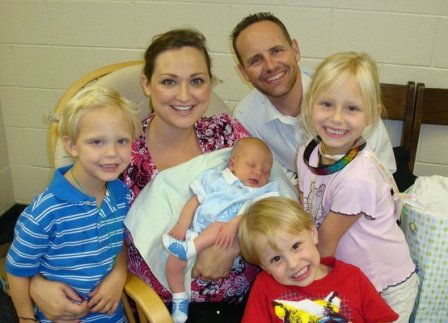
In brief:
1) The two tumors treated by Cyber Knife have remained small and inactive. Very good news.
2) The other two tumors detected earlier have continued to grow but at a slower rate. Good news indeed.
3) The CT showed no further metastasis to other parts of Becky's body such as the abdomen. That is outstanding news!
4) Becky continues to look and feel great. Every time we go to the hospital the doctors and nurses are amazed.
The upshot of all of this is that any further Cyber Knife treatments are on hold until we see significant growth in Becky's existing tumors. As she put it in an email, "do we really want to expose me to certain radiation damage in order to kill 2 small nodules that are growing slowly, especially where my overall health, energy, etc is good?" So, in two or three months we will re-check her lungs and go from there.
Thus we continue down the long corridor of cancer, pausing, it seems, every three months or so as we reach another doorway, not knowing what we shall find on the other side but eager to live life to the fullest along the journey, confidently holding the hand of the One who shows us the way. "Christ leads me through no darker room/Than He went through before," wrote the great Richard Baxter. It would be a very bad sign indeed were we ever to distrust that kind of leadership.
Thank you to all who share this journey with us -- for your prayers and for your partnership in the Gospel.
Monday, July 25
9:42 AM Nigusse leaves Alaba today for Addis. Is he excited? Anxious? Already feeling a little homesick? I do not know. But I do know one thing. He is prayed for.
9:40 AM Becky wants to know: Are you a wimp?
9:32 AM Today's the day: Becky's CT scan. Perhaps her final one. Because I do not expect on earth what will only be given in heaven, I do not believe that total healing for the body is possible. As I read the New Testament, it has become painfully clear to me that even the great apostle Paul, himself the agent of the healing of others, could not even heal himself when he encountered his thorn. Nor, it seems, could he heal Epaphroditus (Phil. 2:27), Timothy (1 Tim. 5:23), or Trophimus (2 Tim. 4:20). My own experience is more like that of Joni Eareckson Tada's: strength in the midst of ever-increasing weakness and infirmities. If I have experienced any healing in my body, it has been through the work of God as He proceeded slowly and by natural means. Without a doubt God can heal supernaturally today. I suggest that it is perfectly acceptable for a husband to pray for his wife's miraculous healing from cancer. I will add, however, that I can be absolutely confident of the assurance of God's love regardless of the outcome of my prayers for healing. I may not assume, as is sometimes done today, that God is obligated to answer in the affirmative the "prayer of faith."
Let me add that Becky and I are at peace. What is important to us is learning how to imitate Christ in holiness, love, humility, and the practice of loving the unlovely and especially the outcast. Our health is not under our control. We live and move and have our being simply as God wills. If we once entertained false expectations that our lives would be free from pain and suffering, these notions have long since died a much-deserved death. The Lord is taking us down a road that many others have trodden before us. Suffering has a thousand different forms -- just ask my colleague Joseph Solc, whose wife Joy is in the ICU at Duke with an inoperable brain tumor. I suppose his experience has been like mine. You simply cry out to the One who intercedes for Christians with inarticulate groans, appealing to God on their behalf. Our experience is no less, just as it is no more, than an intensifying desire to please God and an ever-increasing longing to please Him all the days of our lives. For you can be sure of one thing: your days are all numbered, as are mine and Becky's. Now we see in a glass darkly. But then we shall see face to face.
Sunday, July 24
7:22 PM Good evening, bloggers and bloggerettes! Got time for a quick thought on ecclesiology?
I always enjoy our church business meetings. Today's was no exception. No matter what is being discussed, I sense a genuine willingness on the part of our members to do what is in the best interests of the kingdom. And by "kingdom" I do not mean Bethel Hill Baptist Church. That said, what I cannot fathom is our enslavement to a set of manmade rules for doing church business. Having to vote on an issue according to certain prescribed rules makes as much sense to me as someone getting into a fist fight to promote pacifism. A call to democratic voting ("majority rule") has sometimes been read into certain biblical texts, but it cannot be read out of them. Nevertheless, I suppose Robert's Rules of Order will be with us until the Rapture prior to the great tribulation (or perhaps until the end of that 7 year period, depending on your eschatology).
Two things need to said here. First, I have no doubt that a good many godly and sincere Christians truly believe that a set of manmade guidelines for decision-making is God-honoring, orderly, and efficient. They have not perceived or bothered to think about the theological implications of doing church business that way. Secondly, our God is an extremely gracious God and truly blesses those whose goal is to honor Him. I, for one, am very glad that God operates that way. His patience with those of us who muddle along is simply astounding!
The one thing I do believe is perhaps destructive to the unity of the Body is the so-called vote by secret ballot. Why do I think this? Too often this method of voting is used when people -- usually those who are in the minority on an issue -- desire to preserve their anonymity because they fear censure, rejection, or hostility by the majority. Surely, of all the reasons put forth to follow Robert's Rules of Order, this has got to be the most distressing. The reason is clear. If your church -- or mine -- is marked by genuine Christ-like love, then everybody should be able to vote his or her conscience without any fear whatsoever of being maligned by other Christians. In a healthy church, fellow members, even those with opposite viewpoints on an issue, can love and accept each other without any pre-conditions or pre-qualifications. I confess myself to be one among many whom this feature of voting bothers. Something seems deeply wrong when some members of a congregation despise their fellow Christians who strike them as less spiritual or less informed or less whatever. The Corinthian church was like this. Paul could rejoice that they were gifted and knowledgeable (1 Cor. 1:4-7), but at the same time he could rebuke them for being carnal and immature, behaving in ways that for Christians were inconsistent with mutual love. They were valuing opinions above love and service, and that scale of values, says Paul, is wrong.
Let me say it plainly: Should you and I disagree on a church vote, you can expect me to love and accept you just as if we had no disagreement of any kind between us; and I would expect the same of you. When Paul says that he wants all Christians to be convinced in their own minds (1 Cor. 14:4-5), surely this does not mean that we will always agree on every matter! As someone once said to me, "Dave, we don't have to see to eye on everything to work hand in hand." The mere existence of a secret ballot option makes one painfully aware of the degree of suspicion and distrust that prevails in so many of our churches. In his letters Paul censures nothing so strongly or deplorably as carnality and immaturity. None of us is entitled to claim perfection for our views -- not you, not me. Let us remember that we are very great sinners, saved by grace!
To summarize: How a matter is decided (whether yea or nay) is not nearly as important to me as seeing that every member in my church feels free to vote his or her conscience without any fear of rejection or censure. Let me be clear that if, through peer pressure, everyone should cast the same vote but fail to obey the promptings of the Holy Spirit, true unity will never be achieved. Genuine unity is not uniformity or conformity but a spirit of love and cooperation, even in the midst of a diversity of opinions. I hope we can all agree and remember that the Spirit's first concern is to lead us through faith in Christ to a practical, personal holiness, and then to a life of mutual love and service. Spiritual life, at its core, is fellowship with God and fellowship with our fellow Christians. In Acts 2-6 we see a church with, it seems, some significant disagreements, but with each member pulling his or her own weight in the work, doing what they can to build a genuine Christian community in which all are equally cared for, loved, and valued. The Holy Spirit was the architect and agent of that community back in Acts, and it is He alone who today can create such unity in our churches.
Shall we not let Him have His way?
4:52 PM Lots of reasons to be grateful today:
1) First of all, I want to thank the leadership at The Hill for allowing us to share the opportunities that exist to assist our brothers and sisters in faraway Alaba.
Please know that we do not take this privilege for granted. When I think of all that God has already accomplished in the Zobechame church, despite the opposition of the enemies of the cross, I am simply amazed. What a blessing it is to serve one another in the Body of Christ, regardless of where we live.
2) Secondly, a huge "Thank you!" to Leigh Humphreys' third grade Sunday School class. We're sending Oshe these "arms of love" from the children of Bethel Hill Baptist Church.
Thanks, Leigh, for coming up with this idea and being obedient to the Spirit as He led you and the children to make these beautiful crafts.
3) Finally, I want to thank my church family for always rallying around its sick in their time of need. Here the congregation prays for Becky and Miss India, who are being treated for cancer. One has metastatic uterine cancer, the other metastatic colon cancer. But both are secure in the arms of their great God.
Charles Finney once said, "Nothing tends more to cement the hearts of Christians than praying together. Never do they love one another so well as when they witness the outpouring of each other's hearts in prayer."
Thanks be to God for a praying church!
Thanks be to God for an active church!
Thanks be to God for a missional church!
8:21 AM Last year at this time I was following my colleague Alvin Reid's tweets from Thessalonica. This summer he is reporting from Cape Town, South Africa. One of the best uses of Twitter I know of.
8:05 AM News and notes ... Sunday shout out to Timothy, Abel, Ezekiel, and George, all pastors from Uganda, who joined us for dinner last night ...
... Becky spoke with Oshe yesterday, who reports he and his family are still trying to cope with the loss of their daughter but are greatly encouraged by the emails they have received (Becky has forwarded your letters to him) and especially by the Scriptures; please keep him and Asagarech in prayer ... today is Nigusse's last Sunday in Ethiopia ... this morning Becky will give a brief talk about the ongoing work in Zobechame, Alaba, where a Christian meeting place is being constructed in the middle of an upscale Muslim neighborhood ... here's the latest on Asia Bibi in Pakistan, who faces execution for her faith.
Saturday, July 23
12:28 PM It hardly seems possible. It has been over a year since Becky and I were last in Ethiopia. We have had to accept this as God's will for us. He can be trusted! He can be believed! His promises are absolutely vast! He has graciously allowed Becky and me to soar the heights and plumb the depths, to accomplish goals He has carved out for us in His mind. And the good news is that it's not over yet. As long as we have breath in our bodies we will ask God to give us the precious gift of high expectations, and to make us committed to the right priorities. He is worthy!
For what its' worth, I post here a few pix taken during our last two trips to Ethiopia when Becky, despite her cancer, continued to acknowledge His presence each and every day. Understand how meshed together people and missions are. The most exciting pilgrimage a Christian can embark on is going where Jesus sends you, wherever that may be. For us, it's been Ethiopia. And for that we can never be thankful enough.
1) Here I am with our co-workers' precious daughter. Children are ubiquitous in Ethiopia. More than half the population is under 17.
2) This picture was taken in Gomeda with several of the local church leaders. This was a new field for us. We made many new friends.
3) Here Becky talks with a man who lived in Burji when her parents were missionaries there. I tell you, these older folk were eager to meet the Lapsleys' daughter.
4) In Christ there is no east or west, in Him no south or north. I snapped this just before Becky got up to speak in a rural church in Burji.
5) Everywhere we went Becky's wigs were huge hits, and it seemed all of the ladies wanted to wear them.
6) As I said, ministering in Gomeda was a new opportunity for us. Here I am doing what I normally do when I enter a village for the first time -- drawing portraits of the children in order to attract a crowd for evangelism.
7) Here are three of the choicest servants of the Lord in the whole world let alone Ethiopia: Oshe, Ephraim, and our son Nigusse.
8) Sharing the love of Christ. All it takes is a Bible and an audience.
9) The human touch. Ethiopians are very relational. Their greetings are more than perfunctory too. I miss that, a lot.
10) This was the last time Becky spoke to the believers of Alaba. Nigusse translates for her.
11) Alaba is difficult soil, but God is working through evangelists like this one.
12) Finally, I thought you would enjoy a brief You Tube of Becky being introduced to some of the older believers in Burji, many of whom remember the days when Brad and Betty Lapsleys' white-faced kids played with their own children.
My own life was enriched and deeply changed when I began going to "Utopia" with Becky many years ago. Christianity, when it is honest, open, and loving, powerfully changes the individual and even entire societies. Just as no two Christians are alike, so no two mission fields are the same. God, in His wisdom and grace, has allowed us to see His glory in Alaba and Burji. "Praise the Lord, O my soul. All my inward being, praise His holy name!" (Psa 103:1).
11:02 AM Hartford Seminary announces an opening in Christian Theology.
10:58 AM Bethel Hill update: In September and October, Becky will be offering a course in Personal Financial Planning every Wednesday evening at 6:30 pm. Back in our California days Becky was an accomplished financial planner, winning many annual awards in her company. Her course will be a mixture of sound financial advice along with biblical wisdom drawn from many years of practical experience as a wife, homemaker, and businesswoman. All are invited to attend.
10:51 AM In his latest essay Education and New Testament Greek, Thomas Hudgins seems to think his prof is on to something.
10:45 AM Just took a minute to check up on the donks.
For one thing, they needed another salt block. They've been going through them in no time at all, what with all this heat.
Tolo Tolo seemed to have something else on his mind, however.
I'm guessing we may very well have three donks come this time next year :)
A friendly reminder to all my agrarian buddies: If you have goats, horses, or donkeys, please do check their salt/mineral blocks often. This weather can be fatal not only to humans.
10:04 AM It's going to be over 100 degrees again today, so B. and I were up and at 'em early this morning. Let's see ...
... we got the okra picked and the bed weeded ...
... the beans weeded ...
... and the tomato plants tied up. These are called "big boys," and they are huge.
Then it was down in the crawl space for the old man. Insulation needed re-strapping -- badly. Right now Becky is cooking up some of her award-winning omelets, and I'm getting ready to have a cup of coffee. Enjoy your Saturday wherever you may be, and stay COOOOOL.
Friday, July 22
9:15 PM Becky cooked a dish of delicious shrimp fettuccini as we welcomed Joel and Kimberly Bradsher to the Hall for supper this evening.
Kimberly is expecting #3 in September, and Joel is one of our elders at The Hill. I believe he has even decided to risk life and limb by taking my Greek 3 class this fall. God seemed to steer the conversation toward global missions. Becky and I are so grateful for young people who share our passion for the world and are able and willing to take up the baton. God bless you, Joel and Kimberly. We love you!
3:32 PM The latest issue of the Journal of the Evangelical Theological Society contains an essay by one of my doctoral students. Paul Himes' "When a Christian Sins: 1 Corinthians 10:13 and the Power of Contrary Choice in Relation to the Compatibilist-Libertarian Debate" argues that the believer has the ability to resist sin and therefore, should he or she fall into sin, there is no excuse. There's a lot of interesting and important theology here. In essence, the message is: Be filled with the Holy Spirit. That's the only key to victory.
3:25 PM For all of you Civil War buffs out there, the 150th anniversary of the Battle of First Bull Run (First Manassas) will be held tomorrow and Sunday at the Pageland Farm in Gainesville, VA (close to the actual battlefield). For an overview of events, go here. The reenactment battle will begin both days at 9:30 a.m. and last approximately 2 hours. It will follow the actual scenario of the battle on July 21, 1861. Spectators may also visit the Federal and Confederate encampments and explore living history exhibits on how the battle affected soldiers, civilians, and slaves. I've done an awful lot of reenacting in my time, but I cannot imagine wearing the wool in this weather. Tomorrow's heat index is predicted to be a cool 114 degrees. If you are attending the event, whether as reenactor or spectator, please be careful.
3:18 PM "The best time to plant a tree is twenty years ago. The second best time is today." It's never too late to learn a biblical language. If you want to learn Greek on your own, you might try our DVD series. And don't think that just because you may be older it can't be done. William Gladstone learned a new language when he was 70, and at 83 he became the Prime Minister of Great Britain – for the fourth time. Michelangelo painted The Last Judgment when he was 66. Benjamin Ririe retired from the China Inland Mission when he was 77. When he turned 80 he decided to learn New Testament Greek. Maybe it's time you broke out of your rut!
3:06 PM Love this quote from William Butler Yeats: "Education is not the filling of a pail, but the lighting of a fire."
2:55 PM Jody Neufeld's Loving Lifeguard talks about how to reach the lost for Christ in a winsome way. Admittedly, it's costly, lengthy, messy, and just plain hard work. But it's not impossible. And, as Jody notes, when you consider the alternative, it's well worth the time and effort involved.
2:43 PM I am currently seeking Th.M., Ph.D., or Ed.D. students who are interested in researching the following topics in the area of New Testament Greek:
1) Deponency. Go here for starters.
2) Greek pedagogy. In particular, I would like to survey graduates to see if they have retained their proficiency in the language after leaving seminary.
3) The discourse structure of 1 Corinthians.
If you are interested in any of these topics, contact me at dblack@sebts.edu.
2:28 PM Counting down the days … 3 days until Becky's cancer CT scan at UNC Hospital … 5 days until I give my missions report at Bethel Hill … 7 days until Nigusse arrives at RDU Airport … 20 days until I teach my beginning Greek class in Dallas.
2:24 PM Louisville Presbyterian Theological Seminary announces an opening in Old Testament.
2:20 PM Glad to see a healthy discussion taking place between Alan Knox and Arthur Sido about the institutional church. Why, it looks like they are saying it's actually okay to darken the doorsteps of a traditional church. Very healthy corrective indeed to those who are known for being "anti" the IT and seem caught up in a frustrating cycle – a strange mixture of selfishness, dissatisfaction, and resentment. The grass always looks greener, doesn't it? The problem is that when we start our own paper perfect churches, they always seem to become less than perfect, real quick. Arthur writes:
I hope I am moving past the "angrily shaking my fist at the institutional church" phase. It was cathartic in a way and if I am honest gave me a prideful sense of superiority but it is generally unhelpful in fostering unity in the church and unity is a "first tier doctrine". That doesn't mean that I am not going to speak out against the institutionalization of the church or the professionalization of ministry or any of the other topics that I typically write about. What I am going to try very hard to do is to examine these topics in the context of how we can overcome the barriers to fellowship we encounter and how to foster community in the church in the context we have while working in unity toward a more Biblical expression of the church.
What? Unity as a supremely important goal? You bet! In fact, if unity is our goal, we will think twice about posting essays that only tend to breed pride and disunity. Admission of a problem is the first step toward solving it. And for many of us, it's often a gigantic step.
2:12 PM Hey there, internet peeps. Sorry I haven't updated in a while but I've been on campus. I had a very special treat Wednesday night. Hanna and Kyle Davis fed me the most delicious Indian food for supper at their duplex on campus. Kyle is a transplant from California, while Hanna hails from Mongolia. Here's a pic of the happy couple.
By the way, I just hired Kyle as my second assistant at the seminary. He will join Andy Bowden in that role for the fall semester. Kyle and Hanna are preparing to serve the Lord as Bible translators/consultants in some far-flung field. Then yesterday I had lunch with our students from Uganda and Kenya who are here for their summer intensive.
What a great group of church leaders from East Africa. I showed them pix of Ethiopia, and we talked about missions. We've invited them to come to the farm tomorrow evening for dinner.
Tuesday, July 19
8:16 PM Good post here on why you should study the biblical languages, even if you are not "gifted" in foreign languages.
6:48 PM The current issue of Kindred Spirit, published by Dallas Theological Seminary, has an excellent series on how to deal with aging parents. Essays include "When People Live to Be Very Old" and "Age with Vitality."
6:41 PM Just added to my speaking schedule: Bible conference at Weems Creek Baptist Church in Annapolis, Maryland, January 7-9.
6:33 PM The first item of farm business this evening was making a trash run. Now it's time to cook Chinese food for supper for Becky and Miss Sarah, who is helping B. deep clean the house today.
5:08 PM I see that Becky has been reaping today!
4:45 PM Three takeaways from our discussion of Phil 4:1-9 in class today:
1) Paul was a relational person. He loved people. He loved the Philippians. He longed for them. He felt "tender homesickness" for them. They had brought him joy. They were a cause of his boasting. Paul was a people person. Are you?
2) Paul worked closely with women in his ministry. They were among the church's most active workers. Euodia and Syntyche had struggled side-by-side with Paul to preach the Gospel (not just bake bread). Paul implies that they had even shared in the dangers of his work. Thank God for our sisters in the Lord!
3) Gospel ministry cannot exist without personal and corporate prayer. Paul was prayerful about everything. As a result, he enjoyed the peace of God and release from all worry. We seldom see the other side of the coin. We're seldom aware of what the "unseen" Partner is up to. Hence the need to pray. Don't miss the implications of what might seem an "incidental" exhortation. Make no mistake about it, ungodly rationalism takes the fizz out of God-sized dreams. Pray! Pray before you do something. Pray after you do it. Thank God ahead of time that He answers prayer. Believe that He will use you, that He prepares people's hearts, that He can accomplish the impossible.
3:02 PM My father-in-law, who lives in Dallas, says it's been unbelievably hot there. As proof he sent along the following:

Just hope things cool down by the time I get there next month.
2:55 PM Useful things I found while rummaging through the Internet attic:
-
Toccoa Falls College announces an opening in Youth Ministry.
-
Check out this fantastic Hebrew vocabulary series on You Tube.
-
Here are some flash cards for Metzger's vocabulary list. (Thank you, Gene!)
1:58 PM Michael Barram, who teaches at Saint Mary’s College, has written a fine work entitled Mission and Moral Reflection in Paul. In it he shows that "mission" terminology in Paul refers to his entire apostolic activity, from initial evangelism through ongoing nurture and instruction of believers. Paul could, as the need arose, do some things that were more "evangelistic" in nature and others that were more "pastoral," depending on the given situation. All of these various ministries comprised Paul's Gospel work. His ministry was far more comprehensive than evangelistic. He does not merely try to get unbelievers "in the door" but does what he can to ensure their ongoing nurture and development. For Paul, the Gospel ministry does not end with proclamation.
This is an important observation. We have seen in our Greek 3 class this summer that Paul's desire to send Timothy to Philippi is due to his concern for the Philippians' welfare. Paul had no orphans. He considered "follow up" – ongoing nurture – a necessary burden. And, since he cannot go himself, he does the next best thing. He sends Timothy to provide guidance and instruction. Paul did not abandon the churches he founded to their own devices. Their "progress and joy in the faith" (1:25) remained one of his final goals. Thus he could write to the Galatians, "I am in agony of labor again until Christ is formed in you." Paul is in the throes of labor pains on behalf of the Galatians.
I thought about all of this as I pondered one of Mark Steven's recent blog posts about the difficulties, stresses, and joys of pastoring. Nurture, as every pastor knows, can assume a wide variety of forms, but one thing all pastors have in common is the ongoing maturation of the congregation. All of their efforts, all of their actions, are predicated upon this one concern.
In this light, I cannot help but think of the current situation in Burji. Thoughts pour out of the back of my brain, falling like hot coals. My heart seems to have taken up permanent residence in that faraway place. My mind turns again and again to Paul's statement in Phil. 1:29 that it is our privilege as Christians not only to believe in Christ but also to suffer for Him. I am sure that Satan intends to damage the church in Burji, to impeded its growth, to rob the church of its best and godliest leaders. But it is a grave mistake for me to dwell on the reality of persecution without also thinking about the usefulness of suffering. As I have tried to show in my book Paul, Apostle of Weakness, it is in our weakness that God best displays His strength, and He is able to make even persecution work out for good by producing a stronger and purer church. This does not mean that persecution is desirable. But it does mean that we must always be ready to endure persecution for the sake of Christ. In spite of – of perhaps because of – the severity of the persecution in the Third World, the majority of Christians now live outside of Western Europe and North America. Yes, God is accomplishing His will on earth! Endurance in the midst of opposition is a powerful statement to the world concerning the reality of the Gospel.
Oshe was and is a key component of our work in Burji. It is he who oversees our health center, who tends to the solar panels and loud speakers, who oversees the Bible teaching in the Muslim villages. Becky and I are convinced, beyond the shadow of any doubt, that had Oshe not been such a faithful servant of Christ throughout the years, his daughter would still be alive today. By God's grace we trust that Oshe will continue the work he has begun. From the very beginning of our work in Burji, Becky and I have been careful to pass on responsibility and oversight to Ethiopian nationals, not only because this is the right thing to do but because the Ethiopian church is an equal partner in everything we do. All of us, whether in America or Ethiopia, must depend on God's grace and live for His glory. The bedrock conviction that Becky and I share is that true missions is always theocentric. It is the mission of God, from beginning to end. It is He who calls and sends His people on mission. It is not an overstatement to say that the one thing that has kept us from despairing over the loss of Oshe's daughter is an unswerving trust in a God who is absolutely sovereign, wise, and just. Persecution of believers should not be taken to mean that Christ's ongoing mission in the world is ineffective. For God is always at work, and the Gospel is always the way of the cross, the path of humble service. Discipleship always involves sacrifice.
The essential core of Paul's mission is not found in its strategies or methods. It is the message that defines and determines the mission and the method. Jesus' redemptive mission – accomplished through His own suffering and death – fulfills the promises of the prophets and results in the forgiveness of sins, even the sins of the Gospel's worst enemies. Oshe's mission – and ours – is clear. Sent by the One who has all authority, Jesus' followers are to make disciples of all the nations, disciples who obediently carry out the task entrusted to them.
Monday, July 18
5:54 AM Before leaving for school let me remind everyone to please pray for Oshe and his family, Nigusse, Youcef in Iran, and Josef and Joy Solc, who is still in Duke Hospital.
5:50 AM What is the kingdom of God? Many would identify it with their church or perhaps even their denomination. SEBTS student Justin Deeter shows us a better way in his essay What the Kingdom of God is Not. A sampler:
Churches tend to make an enemy out of another church that loves Jesus and the Bible that is right down the street from them. They tend to view them as competition and not partners for reaching their community with the Gospel. In fact many churches develop a church growth strategy of sheep stealing from other congregations rather than evangelizing to the lost. If a church loves Jesus and preaches salvation by grace through faith in Jesus Christ alone, they are not our enemies but our partners for the Gospel. Sure that partnership might be limited by differences, but that doesn’t mean they are not apart of ushering in the Kingship of Jesus.
Thanks for reminding us, Justin, that we all need to work together to advance God's kingdom and not our own paltry agendas.
Sunday, July 17
1:52 PM It is exciting to see Bethel Hill become more and more on fire for the Lord Jesus and the Great Cause. Here Becky gives an update on Oshe, challenging us to remember that God is sovereign and that He has a good purpose for everything He allows.
Afterwards we had two cards for the church family to sign -- one for Oshe and one for his wife.
Oshe and Asagarech, Bethel Hill Baptist Church loves you!
You and your precious children are deep in our hearts and prayers.
This morning our youth, who just returned from summer camp, were flying high. During the week they worked on construction projects in western North Carolina as well as had some challenging Bible studies. They came back fired up for missions, so much so that the youth themselves have organized a meeting in two weeks for them to pray about an international mission trip next year.
There is nothing greater than to watch our youth step up to the plate and set the example of what it means to be a follower of King Jesus (1 Tim. 4:12). They are eager to set the pace, if we would just let them loose. Shame on the Body of Christ for so often marginalizing our young people and telling them to go out and play when they have the potential to be champions for Christ. Our thanks to brother Joel for his inspirational leadership of our youth, but the credit goes to our great God, and Joel would be the first to acknowledge that.
Spurgeon once said, "Every Christian is either a missionary or an imposter." It would be a happy thing to say that from the day I became a Christian onwards I was committed to the Great Commission. Unfortunately, that would not be true. To be sure, I believed in the message of the Gospel, even began teaching it in 1976 at Biola University as part of the New Testament and Greek faculty, told the tale many times of how we have to take the Gospel to the world, how the early church was engaged with the Good News about Jesus, how the Body of Christ spread numerically, geographically, culturally, how men and women died following in the footsteps of the Suffering Servant. Sadly, it was a rare scholar who modeled for me, a fledging seminary professor, what a world Christian looked like. Hopefully, I've changed since then.
Spurgeon is right: Have you really become a "Christian," or did you just steal the label?
8:08 AM Just added to my required reading list for my New Testament class this fall when we're in 2 Corinthians: To Tithe or Not to Tithe? by my colleague Andreas Köstenberger. I will also ask my students to listen to Don Carson's sermon on the same topic. The sermon link is:
http://audio.stag.org/mp3/200105131115.mp3.
8:03 AM Greek students: There are many useful Greek resources for you to use as you begin writing your term papers on Philippians, including:
Saturday, July 16
9:50 PM Well, the day has come to a close, a day of much praying and much weeping, realizing that peace is a pure gift from God, one we could never repent enough or pray enough or weep enough to find on our own. Our prayer tonight is that Oshe and his family will sleep well, the deep sleep of one who trusts in a heavenly Father who cares and loves and suffers with us. Rest is not found in mere faith but in the object of our faith, and the simpler our faith the better. Tonight, wherever you are and whatever challenges you are facing, come to Him just as you are and trust Him the best you know how. He loves you, He really does.
7:35 PM Just snapped this picture of hot air balloons just east of our farm.
The event is called "Lake Fest" and is held annually in the town of Clarkesville. Becky says we need to take Nigusse on a balloon ride next year. Wouldn't that be something! The Lord could not have provided a more beautiful day for the festivities. I sure hope the event organizers have thanked Him for it.
6:53 PM This post is for our Ethiopian son Nigusse.
Nigu, Lord willing, in just two weeks from today you will be sitting here in the very house in which I am typing this blog post. Can you believe it? Mama B and I are eager to meet you at the airport. We've had some very good times together in Alaba, haven't we? Do you remember the time I drew Desalegne's picture in Alaba town? Here you are sitting right next to me.
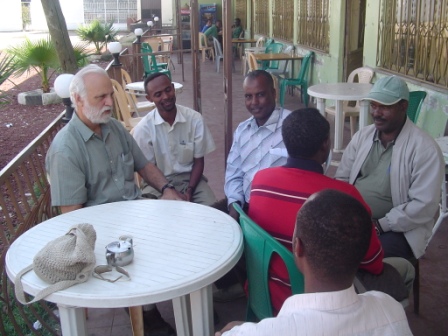
Johannes Katata was watching intensely. I think he was eager to have his own portrait drawn.
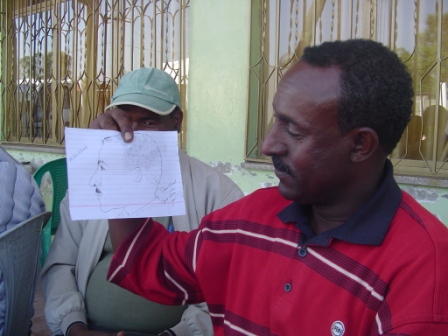
But instead, do you remember that he tried to draw my portrait?
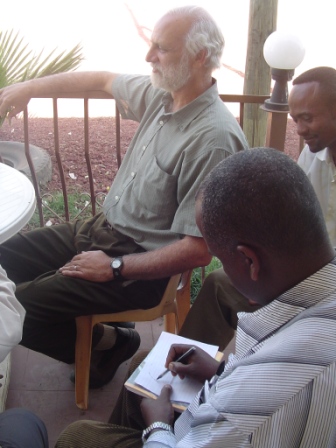
The result was, well, less than accurate.
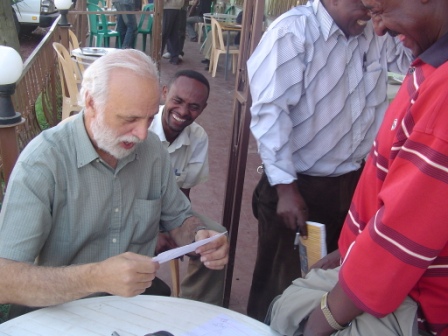
Christians don't get mad; we get even!
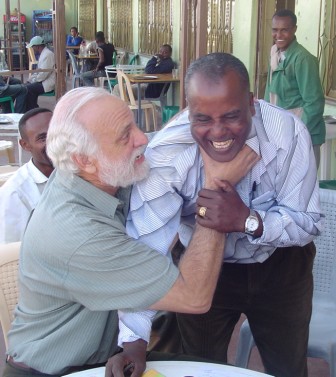
In the end, though, all was forgiven.
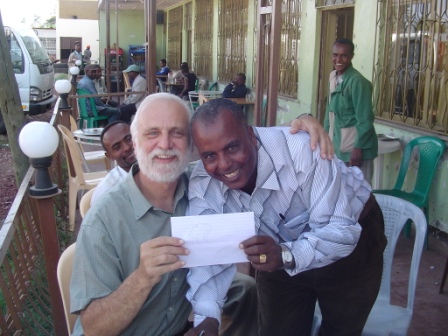
I can't recall how many times you translated for me and Mama B in the towns, churches, villages, and private homes of Alaba. You would even try to mimic my gestures. You are indeed a gifted translator and Bible teacher.
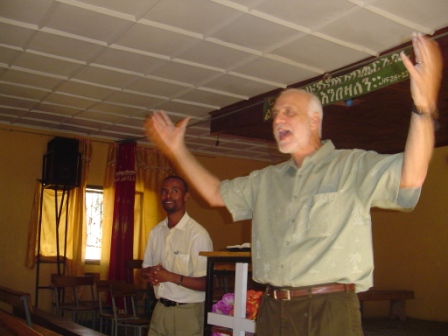
Here we are on our way to Addis. I see I am having a "father-son" talk with you about something. By the way, the cars are not so crowded here in America, but it's something you'll get used to.
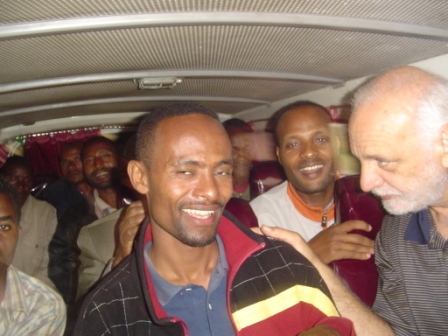
There are many things you have in Ethiopia that we do not have here. This includes your national coffee drink (macchiato) as well something I know you love dearly -- sugar cane.
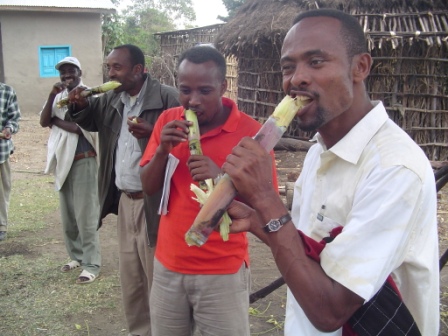
Mama B has already written you several letters about what it is like living here in the States -- our history, culture, religions, temptations, etc. As she has written, one thing you must never do in America is hold hands with another man.
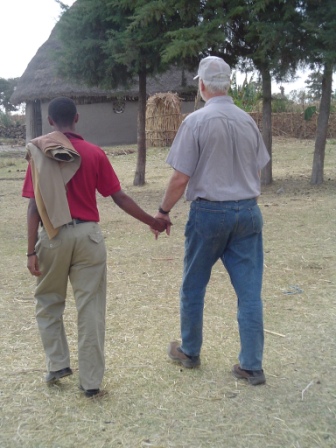
I realize that this is commonly done in your culture (and it is a custom I thoroughly enjoy), but it is taboo here.
Well, son, we have had many unforgettable experiences together in Ethiopia. You have been a faithful servant of God. Like Jesus, you have poured out your life on the altar of sacrifice and service for the kingdom, and you have willingly and joyfully faced many dangers as a good soldier of the Lord Jesus Christ. Mama B and I are eager to have you live with us while you are studying at SEBTS. I know you have many responsibilities in the next two weeks as you transfer your work into the hands of other qualified leaders in Alaba. Know that we will pray for you daily, and that we trust our kind Lord to make your way smooth as you begin your 6,000 mile journey to our home.
I love you.
Papa B
5:38 PM Greek students owe Rod Decker a word of thanks for yet another helpful essay, this time showing how direct and indirect discourse works in Greek. My only quibble: I wish Rod had used plurals in English when translating the plurals in Mark 1:37 ("All are seeking" instead of "Everyone is seeking"). I do think that being a bit overly literal is helpful at the beginning level, but this is a point any teacher can clarify in class if need be.
5:30 PM A thousand apologies for not mentioning this to you earlier, but one of my Greek students from last semester has published his complete translation of the Gospel of Mark. Did he include the last twelve verses? You'll have to read it and see. By the way, Graham and his wife just found out that they are expecting twins. Congratulations to the whole family!
4:58 PM In my book The Jesus Paradigm I refer to the American church's obsession with lavish sanctuaries as idolatry. Too harsh? I don't think so. Today comes this report about a congregation in Las Vegas that is declaring bankruptcy because it cannot pay its -- are you ready for this? -- $53,000 monthly mortgage. What's more, they are calling their action "a stewardship issue."
I'd say it is.
1:40 PM Brief farm update:
1) Here's the tomato sandwich I enjoyed for lunch today. Or should I say, more properly, "mater" sandwich. I post this pic for our good friend Down Under, Mark Stevens, who loves his garden almost as much as I love mine. (Mark hasn't posted in a while. Hope you're okay, mate!)
2) Dogs are so funny. They are hardwired to chase anything and everything that moves. Here they are last night guarding "their" front porch.
As soon as our donkeys in the next pasture came into view, Sheba and Dayda were after them like a fly on a wound. Thankfully there's a fence between the two species, though to be honest, if it came down to fisticuffs I think the donks would have the upper hand.
How can you worry when you remember how God cares for His creatures?
12:34 PM So, Dave, how are you spending your weekend off? Well, the truthful answer is: Loafing. At least most of the time. You may remember that my back has been killing me for the past several weeks. Some mornings I can hardly get out of bed. I started physical therapy two weeks ago in Wake Forest but had to stop when I learned my insurance will not pay for it. In the meantime I've been a very good boy and have been doing my back strengthening exercises twice daily, have seen some improvement, and I am determined to overcome this problem. I may still try to do some basic farm work this weekend but I will take it slow and easy so as not to put my back out again. Oh, there's also good news. During this entire time I have not had one severe migraine, not one, which is surprising because we have had several afternoons with thunderstorms. Isn't God good?
Now, I told you that I'm only spending part of the day loafing. I've been asked to give the opening devotional this year at our faculty workshop, so I have been busy working on my talk. Here's the sentence with which I will begin my devotional: "Holy shoddy is still shoddy." Let me explain.
When I began teaching at Biola many, many years ago -- around the time the Ark landed on Ararat -- I read a wonderful little book that literally changed my life. The book is called The Idea of a College, and the author was the great Quaker theologian and educator, Elton Trueblood.
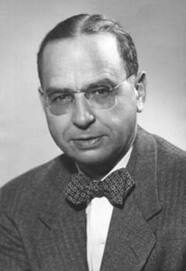
Almost every line in the book leaped off the page at me. But the one I could never forget was this one: "Holy shoddy is still shoddy." Believe me, this is very convicting! Through the years that line has constantly challenged and stimulated me. God expects excellence in all that we do for Him (1 Cor. 15:58: "Always excelling in the work of the Lord," ISV). No, not excellence in the flesh -- the kind that Paul condemns in Philippians 3. But Spirit-filled excellence. In my own life and career, I have often failed to do my God-enabled best. My first life-priority as a Christian is to relate to the Person of the Lord Jesus Christ in such a way that reflects excellently on His good name, and to encourage others to do the same. And yet I fail every day, and I cry out, "Lord, for a closer walk with you!" For example, research and writing have always come easily for me. Yet my strength sometimes become my weakness, and I get too involved in writing when my soul needs to get alone with God or when I need to pour out my life into the hurting all around me, both Christians and non-Christians. These priorities must be active all at once, and all the time. It is not enough to love the Lord. It is not enough to love other Christians. It is not enough to love the world. It is only enough to love the Lord, love others, and love the world, all at the same time. Trueblood's quote is a reminder that there is no excuse for us to live mediocre, washed-up lives without a sense of passion and mission. Every one of us is called to do great things for God. Yet our society, even our church culture, seems to be pursuing an increasingly mediocre philosophy. How often have I needed to hear the words of Jim Elliott:
Wherever you are, be all there, and live to the hilt whatever you are convinced is the will of God for your life.
So remember that. Holy shoddy is still shoddy. Just because is it a sermon or a Bible study, that does not guarantee that it will be done well. Teacher -- teach with passion. Student, study with passion, "so that in all things praise may be given to God through Jesus Christ, to whom belong glory and power forever and ever. Amen!" (1 Pet. 4:11).
11:42 AM How exciting! I just notice that one of my doctoral students, Alex Stewart, has published a book review in the latest issue of the Journal of the Evangelical Theological Society (JETS). Check it out if you can. The book is by Nelson Kraybill and is called Apocalypse and Allegiance. Congratulations, Alex, on a fine book review!
11:20 AM Got a second for a few more muddled thoughts from a boggled brain? There is built into my heart a great yearning for Ethiopia. I know this is also true of many of you who read this blog. It is especially true of Becky. How my heart goes out to her this morning as she suffers with her very own people, the Burjis. As you know, this is one of the places where she lived while growing up in Ethiopia.
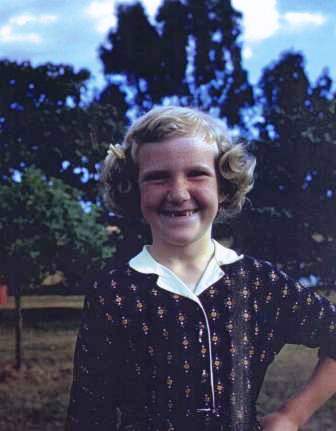
How I wish that she (and both of us) could be there this morning for the funeral. But it is not God's will for us. No matter. God is there, and He has a haunting love in His great heart for the people of Burji. And He wants to use this experience to stretch our own hearts to share His love with others. Maybe that is one of the reasons He allowed this tragedy to happen in the first place.
When the famous British preacher F. B. Meyers was staying as an overnight guest in the home of A. B. Simpson, the founder of the Christian and Missionary Alliance, he stole downstairs in the early morning, thinking he was the first one up. But there in the partially open door to the study he saw Simpson in prayer. He had a world globe in front of him, and he would put his finger on one spot and pray. Then he would spin the globe, put his finger on another spot, and pray again. As Meyer watched unnoticed, Simpson suddenly leaned forward and took the globe in his arms, hugged it, and began to weep.
My eyes tear up telling you this story. My heart is broken today for Oshe and his family, but also for the truck driver who killed Oshe's daughter, for the Shepherd-less and leaderless and guideless and hopeless and helpless and unsaved people in Soyama and Nedele and Chuluse and Wordeya and Galana and Shule, the same people Becky and I have tried to evangelize over and over again.
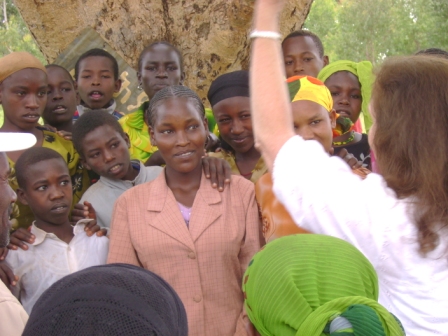
When Jesus saw the crowds He loved them and His heart moved toward them. Today my weary heart is moved toward the suffering people of Burji. How I desire to go back again and "tell the people the full message of this new life" (Acts 5:20).
God loves people! And He wants us to love them too.
8:44 AM Good morning to you, co-bloggers, where're you are. It is a beautiful summer day here in southern Virginia, and promises to be a bit cooler than days gone by. My body is here on the farm but my mind wanders disobediently to a place 6,000 miles away. Yesterday, Becky shared with you her thoughts and feelings about Ethiopia. May I do the same with you this morning? This may be long ...
It's been several years since B and I began our work in Burji. Yet I have never felt more closely bonded with our brothers and sisters there than I do today. The church in Ethiopia is in the midst of great societal change, political uncertainty, and cultural upheaval. A cacophony of voices seeks to be heard. Resurgent Islam is making fervent efforts to claim the allegiance of Ethiopia's 80 million people. Still, God has the entire world and its peoples in His hands. The history of the church in Ethiopia is a record of incessant missionary activity. But this activity has come at a price. Everywhere you look, the conflict with the Gospel is a severe one. This conflict, as you well know, is with hidden spiritual forces in the world. These forces are personal demonic beings as well as all of the impersonal structures and forces in society that the devil uses to impede the spread of the Good News. Unlike here in the West, Third World missions assumes the reality of evil spirits and demons. These forces were responsible for the crucifixion of Jesus, and they still seek to dominate the world today by their powers. As believers in Christ who have already been delivered from the "principalities and powers," our job is to resist them more strongly through unceasing prayer, incessant vigilance, and faithful words and deeds. The Scriptures leave us with a clear picture of the nature of the battle we fight. We enter this battle best when we enter it on our knees, under Christ's authority, and in obedience to His command (Matt. 28:19-20). In the nitty-gritty give and take of working together for the Gospel, we learn that we truly are members of one another. We learn to act out this unity, visibly and audibly -- and especially on our knees employing the spiritual weapons He grants us for the task (Eph. 6:10-20).
Attacks will come. We know that. As soldiers, then, we must always be ready. To be the true church, there must be a partnership in the sufferings of the worldwide Christian community. Our weapon, paradoxically, is the Gospel of peace. It is the sword of the Spirit, God's word to men. Our assignment is to pray "for all the saints" (Eph. 6:18), and with them. The apostle Paul was never alone in his prison cell or in his ministry because other members of the Body stood with him through prayer and supplication. His request was not for deliverance. It was that he might boldly proclaim the Gospel as an ambassador in chains. Intercessory prayer is emphasized throughout the New Testament (Col. 4:2-3; 2 Thess. 3:1; 1 Tim. 2:14). Would that all Christians were praying Christians!
So, how am I praying for Oshe and his family today? My prayer for the church in Burji is that it will maintain its passion for holiness and truth, and that it will practice love in action, animated by Christian hope and by the assurance of Christ's victory over sin and death. Toward these ends, I intercede on behalf of the brethren. Whatever our enemies may do to us, the purpose of Christ's mission is to bring them to the Father's house.
Today I will also pray for the church in America. You and I are so blessed to live in a country that enjoys relative freedom from oppression. What a grave responsibility that should lay upon our shoulders as believers. When I look at the suffering church around the world, I become impatient with students who slough off their assignments, who fail to perform with excellence, who take their education for granted. The present generation of Americans has received the most unearned and undeserved blessing of all time. The Lord God has made us the richest nation on earth and we squander our wealth as if we had no obligation to serve Christ wholeheartedly or to take His Gospel to a lost world, dying in darkness without a Savior. Take any problem you might have and multiply it a thousand times and you will begin to understand what the church in Burji faces. It is time we repented. It is time we stopped comparing ourselves with our fellow church members and started comparing ourselves with the high calling of God in Christ Jesus our Lord. We must get up, raise our sails as it were (Heb. 6:1), and allow the Spirit of the living God to move us out of our apathy, realizing that all of our blessings as Americans are only temporary and conditional. May God open our eyes to the reality of the needs in Ethiopia. Remember, these are real people, with real souls, with real heartaches. But as bad as the persecution is in Burji, the worst scandal of all is the situation here at home as we stuff ourselves with the Gospel while millions the world over are still waiting for their first bite.
Incidentally, in your prayer time today, will you also remember to intercede on behalf of our brother Youcef in Iran? His execution is still a possibility, though it looks like his case has taken a very strange turn. Youcef's claim that he was never a Muslim in the first place, if true (and I have no reason to believe that it isn't), might well be the one fact in this case that results in his freedom. You can read the whole story here. Remember, also, to pray for those Christians in East Africa who, simply because they are Christians, will be overlooked when food aid is distributed during the current drought. Yes, this actually happens. I have witnessed it personally in Ethiopia. (The story is here.) Please read these news stories slowly and prayerfully.
Thanks for listening. Thanks for praying. And thanks for realizing that the great need today is for Americans who will cease chasing their own dreams and ask God, What do you want me to do? God doesn't need our abilities any more than He needs our money. He wants us.
Friday, July 15
9:22 PM Becky shares her thoughts about the funeral of Oshe's 4-year old daughter in our beloved Burji:
As I sit here writing, my heart is in Burji. People have been streaming into Soyama Town from all over Ethiopia and Kenya. They have come by rickety bus, riding on donkeys, walking. It is part of the Ethiopia culture to come to those grieving and share their burden. Oshe is well-known and well-loved all over Ethiopia and Kenya. He is a rare jewel in the work of the Kingdom, and we are honored to know and work with him. We feel a special kinship now because it is likely he would not have been targeted for this persecution if not for our work there.
Ethiopia is 7 hours ahead of us. In about 3 hours the people will be gathering at Oshe's home, and an evangelist will start preaching. The crowd will overflow into the street, and the preaching will be open to all the townspeople. The emphasis will be upon the Gospel, the risen Christ, and the hope we have because we have died and risen with Him. In the ancient days, Ethiopians actually hired "professional" mourners to wail loudly at funerals. But those who came to Christ showed a different theme at funerals. Yes, there is crying...but there is also singing, clapping, rejoicing. It is very different from American funerals.
After about 2-3 hours of public preaching and singing at Oshe's home, they will proceed to the cemetery. The procession includes all the Christians, choirs from various churches in their colorful robes, maybe a guitar, several African drums, the cross that is marked with the name and dates of his little girl, and then the casket is carried. It is very likely that the casket will be carried in back of the clinic ambulance that God by His grace allowed us to provide; this is a way of showing special honor to her.
You can already see how tightly joined we are to what is happening there.
The procession will wind through the streets of the town. Muslims and non-believers will watch and listen as the Christians sing songs of praise to the Savior and as an evangelist recites Scripture verses through a hand-held battery-powered loudspeaker. They will sing their songs in the tribal language of Burji. These are songs that they have written themselves; they are not translated songs from the Western church. One of those songs goes like this: "How can I be silent? I must sing for joy. How can I be still? I must dance. Because Jesus has made me happy. Jesus has healed my soul. Jesus is my Lord and my God." Everyone who has gone with us knows this song....it is a favorite amongst the Burji Christians.
And as they sing, they will sway and jump and clap....pure joy in the resurrected Christ!
Slowly they walk. The choirs set the pace. Sometimes they stop and sing/dance in place. Then they begin forward movement again. I have been in many Ethiopian funerals, and the ceremony of a Christian is beyond words...the testimony rings so loud and clear! (Will the killer of this little girl be watching? Will he be listening? Are you praying for his soul?)
After about 2-3 hours of walking, they come to the cemetery of Soyama Town. It is set at the edge of the town, up above the town. The last time I was in this cemetery was December, 2005. We were burying a man who was figured to be 140 (yes, 140!) years old.He had come to Burji as a missionary of the Ethiopian Orthodox church. As a young man, married with 2 children, he came from the north of Ethiopia, through a sleepy little village (Finfinne) that later became the capital of Addis Ababa; he came through it before King Menelik II had moved his palace there in 1881. Somehow, in the far south of Ethiopia, he learned the true Gospel and embraced Christ's salvation through faith. The Orthodox church beat him severely, knocking all his teeth out, and his wife left him with his sons. He remained faithful to the Gospel, traveling around southern Ethiopia preaching the Gospel. The Muslims said, "He has no family. When he dies no one will bury him." He died during one of our visits. We "happened" to be there with a car.
And I "happened" to have decorative tinsel. His Christian family came from miles around (including his foreigner sister from America) and he had the most elegant funeral procession in the history of Burji! His was the first ever procession in which the casket was carried in a car! What a testimony to the unbelievers of the Lord's ability to honor and care for His own servants.
At the cemetery overlooking the town and the Burji Valley, there will be more preaching and choir singing. Someone will share the story of this little girl's life. Several elders will pray.
Then the casket will be lowered into the ground and several will gather around to fill the space with dirt. Finally, the grave will be built up with a stone edging and the cross is place on top.
As the Christians drift back home, they will walk in small groups, keeping the fellowship tight. They will continue to sing as they divide up, taking different paths to their homes. And as the sun sets, they will enter their homes, safe from the hyenas.
And so another one of our Family is laid to rest. Another page is turned. But the Story goes on. You and I have more writing to do, as we live for the One who died for us. And when the last page of His Book has been written, He will come in the clouds with a shout....and the dead in Christ (including Oshe's daughter) will rise first. Then we who are still living, still serving Him, still living for Him, still looking for Him, will be caught up in the clouds with Him and with them....and so we shall forever be with the Lord.
Even so, come Lord Jesus!
6:34 PM Well, we've just finished our second (of three) weeks of Greek 3. I have thoroughly enjoyed going through Philippians again. It's a lot of work, but well worth it. I've been praying the whole time, mostly praying that I wouldn't make the course any more difficult than it needs to be, and that my students would persevere. I figured out something today that was really good: that I really do love Hawthorne's commentary on Philippians. I think it is simply superb, and I am adding it to my list of required texts for my fall Greek 3 class. The enormity of the letter's message is really too big to comprehend, but I think Hawthorne captures the essence of every paragraph. It may seem weird that I am just now coming to this conclusion, and I'm not necessarily convinced that one must require a commentary when one teaches a New Testament book, but I really sense that having this book on hand will diminish the problems that my students inevitably encounter when translating Philippians. At the same time, I don't want them to get so caught up in what others are saying that they miss something the Lord wants to teach them directly through the Greek text itself.
Sorry to beat a dead horse, but I wonder if we Greek students are really learning anything in our seminary classes. Today I stumbled upon a study of the fallacies all of us should avoid when teaching or preaching. The study is called Unlocking the Text. One of the fallacies it discusses has to do with over-interpreting the word huperetes in 1 Cor. 4:1. At the 10:44 minute marker in this sermon, John MacArthur appears to commit this fallacy. Does the word really refer to the "under-rower of a trireme"? What do you think?
And, while we're on the subject of Greek, this week in Greek 3 we discussed the translation of pherometha in Heb. 6:1. The Greek seems to require the translation "Let us be carried along to maturity." Yet most modern translation have something like, "Let us press on to maturity" or "Let us go on to maturity."
One author writes:
"Let's be moved along" is not our personal effort, but "a personal surrender to an active influence," says B. F. Westcott. Literally, the author says, "let us be carried forward," with the idea that it is not the learners being carried by their instructor, but of both the learner and the instructor being carried forward together by God. This is the work of the Holy Spirit. It has been called the divine passive, implying the agency of God. The reader is impelled by the Holy Spirit. Christ is moving or carrying all things on to God's eternal purpose for them. We need to get out of the way and let Him do it in and through us to His glory. The believer needs to make himself available to Christ so that he will be borne along unto perfection. He refuses to go back over old ground with his students. "For all who are being led by the Spirit of God, these are sons of God" (Romans 8:14). The Holy Spirit is the true dynamic of spiritual growth.
Peter (2 Pet 1:21) uses the phrase "carried along" to describe the work of God and His Spirit. And in Acts 27:15-17, a ship is said to be "carried along" by the wind. George Guthrie agrees with this interpretation in his Zondervan commentary on Hebrews. So here's my question for you: Why isn't the verb rendered passively in most modern English translations? The Greek allows for it, and the context seems to require it (see 6:3: "This we will do, if God permits").
You can guess where I'm going with this. Exegesis is just downright hard. If anyone struggles with being faithful to the Greek text, I do. I struggle because even though I have a pretty good handle on Greek, I am still influenced by tradition, by my past associations, by my laziness even. I struggle even though teaching Greek is one of the most exciting things I do. How wonderful that God is so patient with us. What it all comes down to is this: God has been faithful to us by preserving for us His Word. Now we must answer with our fidelity. Bible teacher, others may give their attention to the inconsequential. How about you?
In more seminary-related news, I have almost finalized the guest lecturers for my New Testament Introduction class this fall. Here's the penultimate list:
-
Alan Knox, "The Church by Example in the Book of Acts"
-
Alvin Reid, "Evangelism in the Earliest Church"
-
Robert Cole, "Paul's Use of the Old Testament in Galatians"
-
John Hammett, "N. T. Wright and the New Perspective on Paul"
-
Michael Rudolph, "The Structure and Significance of Eph. 1:3-14 from a Linguistic Perspective"
-
Ken Keathley, "Kenotic Christology: Is It Orthodox?"
-
Maurice Robinson and Steve Frary, "Is Jesus Called 'God' in 1 Tim. 3:16?"
-
David Lanier, "Jesus as High Priest in Hebrews"
-
Andrew Bowden, "Structure and Purpose in the Strawy Epistle: Examining James through Discourse Analysis"
-
Paul Himes, "Socio-Scientific Criticism in 1 Peter: What Is It and Why Does It Matter?"
-
Alex Stewart, "Revelation as Prophetic-Apocalyptic Exhortation"
Finally, on the missions front, I see that our beloved Ethiopia is one of the most corrupt nations on earth, according to this report. It ranks 116 out of 178 nations. I grieve SO much for our friends there who must suffer under such a system. It's a very complex situation, but essentially there are two laws: what is written, and what someone says. I could tell many stories but there's not enough time to tell them. Thanks to everyone who believes in the work we are doing there, and don't stop praying for the team we are sending in November of this year to Alaba and Burji. They will have to negotiate many hurdles but the results are well worth it.
6:15 AM Scatter shooting …
1) Bruce Ashford lists several reasons why you should consider doing an M.A. or a Ph.D. in Old Testament at SEBTS.
2) Luther Seminary announces an opening in Old Testament.
3) Biola Theology Professor Ashish Naidu answers the question, Is Hell a Vital Doctrine? Outstanding!
4) Congratulations to recent SEBTS Ph.D. grad Keith Campbell on his recent appointment to Shanghai Normal University.
5) From yesterday's class. Can you guess the passage?
Jesus put Himself totally at the disposal of other people. And so must we.
6) The moon rises over Rosewood Farm at 9:00 pm last night. Simply gorgeous.
Off to school.
Thursday, July 14
8:38 PM Good evening to all my blogging buddies! Today I taught my class, had some meetings on campus, then came home and spent three hours mowing the grass, and topped it all off with a delicious dinner with Becky in "our fair city" of Clarkesville, VA. Right now I'm ready to spend some time with the puppies, who have sorely missed their master. But first: Thanks to all who sent me words of encouragement and sympathy for Oshe's loss. Please keep him and his family in your prayers, as well as Joy Solc who had a stint put in this morning at Duke Hospital. So much to pray for ....
Last night I read a delightful book by Christopher Little called Mission in the Way of Paul (New York: Lang, 2005). It is the author's doctoral dissertation at Fuller Seminary. His is one of several works reflecting recent advances in biblical theology centered on Paul and his work as a missionary. Among other things, Little shows that any attempt to use Paul as a model for the financial support of cross-cultural workers is groundless. Though Paul granted liberty to others in this matter, he himself refused to operate in this way. Little is also convinced that contemporary Christianity has departed from Paul in its practice of providing for regularly salaried local church leaders, noting that salaries in the U.S. for pastors ($16.7 billion annually) is more than the total amount given by all Christians, globally, for foreign missions.
I list here only a few of the many takeaways I got from reading this excellent book:
-
Paul never sought support from his churches.
-
At times he benefited from his churches in other ways (hospitality, lodging, love gifts), but these were in no way payment for services. Hence Paul can never be conceived as a hired worker of the church.
-
By offering the Gospel "free of charge," Paul was able to reach those at the bottom of the social ladder, seeing that his services did not entail a financial fee. In Paul we see a person willingly stepping down the ladder of social status in order to help everyone, including slaves.
-
Paul's financial independence enabled him to protect the independence of the Gospel. This independence did not come easily for Paul. According to first century sources, the usual work day consisted of daylight hours only. Paul claims that he worked "night and day" (1 Thess. 2:9), presumably beginning work long before sunrise and continuing through much of the day and evening. Paul thus showed how extraordinarily industrious he was. Paul’s practice of preaching free of charge is to be contrasted with that of his opponents, whom he can describe as "retailing" (kapeleuontes) the word of God (2 Cor. 2:17).
-
Besides his policy of working for a living, Paul must have viewed the secular workplace as a venue for sharing the Gospel. Thus Paul is best understood as a diligent leather-worker who was also busy preaching the Gospel and serving the churches.
-
Paul's life as a self-sustaining worker in service to the Gospel was intended to be an example for other believers to emulate. Paul’s life and labors were paradigmatic for the church. This is clearly seen in his Miletus discourse to the Ephesian elders in Acts 20. Leaders are to refrain from idleness, provide for themselves by working, and thereby gain the respect of outsiders. Paul’s practice of self-support is reinforced by Luke’s reference to an agraphon of Jesus (Acts 20:35). "It is more blessed to give than to receive” does not mean “It is blessed to give and cursed to receive." Neither Paul nor Jesus forbade accepting support. In Paul's case, the saying means that it is more blessed to work and thereby have something to give to the needy than to receive support from the churches. (In passing, this is one of the reasons Becky and I are fully self-supporting in our mission work in Ethiopia: Why should money be used to pay for our expenses when the needs in Ethiopia are vastly greater?)
-
The notoriously difficult passage in 1 Tim. 5:17-18 refers, not to pay for fulltime workers, but to tokens of gratitude for spiritual help received. Such honoraria, Little argues, are free-will offerings, the very antithesis to a regular paid salary.
-
In the case of other apostles who, unlike Paul, were not craftsmen but fishermen or farmers and who had to give up their work to missionize in faraway places, the "privilege of support" was an option. Apparently Peter and the other apostles made use of this right on their missionary journeys.
-
Finally, Little notes that Paul gladly received gifts from others (the Philippians, for example), but he never asked for gifts. In fact, in Phil. 4:10-20 (where Paul acknowledges receipt of the Philippians' gifts), he makes it clear that he is not asking for more gifts!
This is a wonderful book about missions. Paul's one passion in life was to see God glorified by making His name known to the nations. Moreover, he sought to preach the Gospel in such a way that no one could accuse him of serving Christ for worldly gain. What a contrast to so much that today passes for "missions" under the control of bloated bureaucracies. Paul never established a missions agency, never lived on a missions compound, never built buildings of any kind. He had no "ten-year plan" other than to be obedient. Paul's style of working as an itinerant evangelist made it possible for him to urge the churches to take responsibility for their own life from the beginning. He modeled for them a relational lifestyle characterized by personal self-sacrifice. He expected the churches he founded to manage their own affairs and pay their own way, even though many of them were extremely poor (2 Cor. 8:2). Even though Paul was involved with the Antiochene church's famine contribution (Acts 11:27-30) and the Gentile collection for the Jerusalem church (1 Cor. 16:1-3; 2 Cor. 8-9), he focused on the development of local resources for the growth of the churches as opposed to importing resources from elsewhere. Just as Paul was self-supporting, so were his churches.
Little rightly condemns the dependency syndrome that characterizes much of the relationship between the Western and non-Western churches of today. He asks, in essence, "Are we committed to planting or growing churches that are truly mature and independent, not only in leadership but in finances as well?" My own view is that genuine partnership need not entail the syndrome of dependency. Churches need to share resources, especially in times of crisis. And yet Little is correct about the ever-present danger of "dollar imperialism." I have personally witnessed the tragedy that occurs when Third World churches adopt Western patterns of ministry. This means that we should always emphasize the local church and the local culture and help Third World churches become less dependent on the West for ideas and resources.
So ... it's off to see the dogs and then watch Wives and Daughters with Becky. Osborne Hamley is about to die, while his brother Roger is finishing his expedition in Abyssinia (Ethiopia). I feel very much like the squeaky old Squire meself!

Tuesday, July 12
6:40 PM I've been sitting here in front of a blank computer screen, trying to write but finding it almost impossible to do so, my hands trembling, my heart breaking and aching. Yesterday I received news about a co-worker in Ethiopia that stunned me. His name is Oshe. We've known Oshe since we began our work many years ago in faraway Burji, near Kenya, accessible by a 19-hour bus ride from Addis Ababa, literally at the end of the world, lonely, forgotten, but deep in our hearts because this is where Becky grew up as a missionary kid. Oshe has been our point man for many of our ministries to the Muslims in Burji. He is perfectly suited for the job, speaks English well, can understand organization, mechanics, electricity and electronics, how to get things done and how to keep things maintained. He helped us install solar power at several churches, saw to it that the loud speakers played Christian music and Bible teaching day and night, distributed our hand-held Sabers filled with solid Bible teaching. Because of his faithfulness to the Gospel he has been in the crosshairs of the Evil One, the target of opposition and persecution. Last year his cattle and goats were "accidentally" run over and killed by a truck. (It was no accident.) Then word came on Saturday that his 4-year old daughter was run down and killed by the same driver. When he got the news he fainted straightaway, remained unconscious for a whole day. I imagine that today he feels like he is choked tight in a horrid nightmare.
When I got the news I felt a sudden rushing sense of my human frailty, an enormous unnatural fragility, like hollow glass. The great cold message had come as a shock. I felt the beginning of an awful anger, an unbearable sadness, repressed it. "Oshe's daughter is the second martyr of our work in Burji," Becky said to me, calmly. I struggle to wrap my mind around that thought. James, our 24-year old Burji translator, was murdered by the Gujis after he had dared to translate for us. And now this. Honestly, I do not know how to respond. Deep down inside my being there is a conversation going on, between me and God. Lord, is this the price of building your church in Ethiopia? Once again I am forced to return to my conviction, reinforced through my reading of Scripture, that however terrible the tragedy, more important still is the living God in whose hands Oshe's daughter now lies, in peace. It forces me to think more deeply about the Great Commission, about Christian discipleship, about the cause of evil in this world, about the love and grace of a God who gave His own child to overcome that evil. For years now I have been unable to divorce my discipleship from global missions, have been learning the blessing of suffering. Nothing that happens, including family tragedy, family separation, family opposition, can separate the true believer from his or her compassionate High Priest.
The church in Burji has no earthly power. It has only the power of the Holy Spirit, the power of love and truth – and of forgiveness. This coming Saturday, during the funeral, it will be evident to all that it is costly to follow Jesus in Burji, Ethiopia. Suffering is normative for the Christian, not an aberration. Nowhere is doctrine and life, theology and practice, so interwoven as in the arena of martyrdom. Our Christian faith includes the acceptance of death for the sake of that faith. It is never a death sought in and of itself. It always includes a passive element, since one can always escape death by denying one's faith. In the New Testament, Jesus is presented as the prototypical martyr. He is the "true and faithful witness" (Rev. 1:5; 3:14), accepting persecution and death. The account of Gethsemane reveals His courage, His resigned acceptance of the cross, His victory over despair (Luke 23:46). Peter says of Him, "When He was insulted, He did not retaliate with insults. When He was tortured, He made no threats but put His trust in the righteous judge" (1 Pet. 2:23). If Jesus was to be faithful to the mission the Father had given Him, He had to accept persecution and martyrdom. In His preaching Jesus emphasized the place of suffering: "You will be hated by everyone on account of my name," adding, "the disciple is not superior to his teacher" (Matt. 10:17-36). In New Testament times Christians had to choose between Christ and Caesar. Many joyfully accepted their death, confessing Christianus sum, "I am a Christian." Even Jesus was executed as an enemy of the State, outside the city (Heb. 13:12). Like Jesus, the believers in Ethiopia accept in their martyrdom the face of death, though not without intense grief. Even now Oshe is too weak to speak about his daughter's death. All over Ethiopia innocent Christians are being murdered, but not without hope. In the midst of the unjust and repressive order of this world they recall the words of Jesus: "Unless a grain of wheat falls into the earth and dies, it remains alone. But if it dies, it bears abundant fruit. He who loves his life loses it, but he who hates his life in this world will keep it for eternal life" (John 12:24-25).
Persecution is nothing other than sharing the fate of Jesus. The death of Oshe's precious daughter is an opportunity for us Americans to live as true brothers and sisters with the church in Ethiopia. As Becky put it in a recent email, "We don't want the killer jailed. We want him saved." Let us not become like Peter who, appalled at the prospect of a suffering and dying Messiah, argued with the Lord whose messiahship he had just confessed. In His response Jesus was categorical: "If anyone wants to be a follower of mine, he must leave self behind. He must take up his cross and come with me." In many ways, persecution determines His true followers. It distinguishes the true from the false church. The cross was central to the life and work of Christ, and it must be central to the life and work of the Christian. A Christian without suffering is an oxymoron, a contradiction in terms. It is as meaningless as a Christ without a cross. There could have been no Easter without a Good Friday.
When a Christian suffers, Christians everywhere should not mourn as if something strange is happening. Instead, we should rejoice just as the apostles of the Lord rejoiced because they were "thought worthy of suffering for the blessed Name" (Acts 5:41-42). Suffering is the price of grace. So, as the church in Ethiopia suffers, we suffer with it. As Christ's cup of suffering overflows, we suffer with Him. But we do not grieve as those who have no hope. If suffering be our lot, it is to help us bring consolation, comfort, and strength to others. Christ turns the table on the devil precisely at the point of what the world considers his triumph. "With all this in mind, what are we to say? If God is on our side, who can be against us?"
The demons do not fear denominational programs or bureaucratic initiatives. What they fear is a person, not a program – a person who carries on in the midst of pain and heartache, who realizes that nothing can ever separate him from the love of God which is in Christ Jesus our Lord.
In other, completely unrelated news, Becky has written a fine essay about what the Lord has been teaching her while picking blackberries from our berry bushes. The thorns of life are rarely expected. Speaking of thorns, my colleague Josef Solc knows the pain of unexpected bad news. His wife Joy has just been diagnosed with an inoperable brain tumor. They are struggling to know what to do now. Tears well up just thinking about it. My heart breaks for them, prayers are lifted up, others joining in, many others, seminary colleagues and students, lifting our voices, cracked and broken, thankful for The Man of Sorrows.
Sunday, July 10
6:52 PM Good evening, bloggers and bloggerettes! I'm snatching a quick moment to give you an update of the great day we're having. It started with a fabulous Sunday School lesson by brother Woody, who reminded us that we are all to obey the Great Commission, not just those who are "called" to do so. I love it when he asked, "How many of you have a passport?" Good question!
Then it was brother Jason's turn to lead us into the depths of the book of 1 John, this time with the reminder that all sin is disobedience, and this is why it is so important for us to enter into the servant heart of Christ, who always sought the good of others and rejected selfism.
By the way, neither Woody nor Jason is seminary trained. But both know the Scriptures deeply, have a close walk with Jesus. Empowered by God, our so-called "laymen" vividly illustrate the impact of a life dedicated to God and connected to Him through prayer and Bible study.
As I said earlier, we're Baptists, therefore we eat.
Our church obviously loves our pastor and his wife, Jason and Mollie. Our covered dish dinner was merely an excuse to honor them and give them a few tools as they move into their very own house. Brother Jason, a 4-time missionary to Ethiopia, is currently completing his Ph.D. at SEBTS.
How many rednecks does it take to install a rain gutter? Well, as you can see, at least four.
I am amazed at how such an easy project can easily turn into an all-afternoon affair. But not to fear -- the Humphreys came to our aid. Thank you Marshall, Leigh, and Thomas. Right now Thomas and I are going to prepare blackberry pancakes for supper. I tell you, that boy can eat.
Tomorrow it's back to school for yours truly. Studying the Greek New Testament has the power to change anyone who is weary of half-hearted Christianity. I pray and hope that though our classes this week Jesus will come into our classroom, sit down, and share His great heart with us, and that we will all listen carefully to what He has to say to us. May I get out of the way and let the Master Teacher do His thing.
4:37 PM Quick note to say our email is not working so if you are trying to reach me it may be a while before I can respond. Thanks.
8:14 AM This morning, breakfast is being served at The Hill. Then after the service we are enjoying a covered dish supper together. Yes, we Baptists like to eat and fellowship together.
8:04 AM Last night, while reading Ray and Lauralee Lindholm's book Out of Darkness into Light, I saw this paragraph:
Recognizing the importance of fluency in Amharic, we chose to take a four month refresher course when we returned from furlough. Our tedious hours of study paid off. We were rewarded by being able to go beyond superficial small talk to facility in expressing things of the heart.
What a beautiful way to emphasize the importance of learning a language! Becky and I have spent many hours in Addis Ababa with Ray and Lauralee, heard their stories of the planting of the first church among the Menz people, saw their passion for Ethiopia. A distinct joy for me was watching them communicate in Amharic to the people they love so dearly.
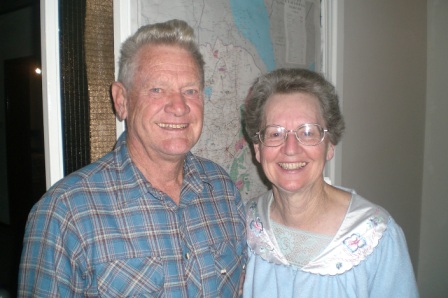
My sense is that those who have a fluent knowledge of a modern foreign language have a distinct advantage when it comes to understanding the Greek of the New Testament. The ability to interpret New Testament Greek depends to a large degree, in my mind, on being able not only to read a language but on the ability to think in a language. In this way, translation becomes more than a word for word process. It becomes more intuitive, idioms are better understood, the difficulties in going from one language to another better appreciated.
If, for example, you can speak modern German, and speak it well, you realize that there is rarely if ever only one way to translate German into English. ("Wollen wir uns auf Deutsch unterhalten?" is a good example.) In fact, many German expressions cannot be translated literally from German into English. This is one reason I ask my doctoral students to try and acquire a speaking knowledge of the research languages (French and German) rather than just a reading knowledge of them. Goethe once said, "Language is the mirror of culture." He was right. Koine Greek gives us a unique glimpse into the cultural milieu of the first century world. The more we read it, the better we will understand it, and the more we will be able to gain an intuitive sense of what an author is saying.
6:48 AM Time to redraw the world map, again. Welcome to nationhood, South Sudan. Last year Danny Akin and a team from SEBTS visited southern Sudan. You can watch a brief video report of that trip here.
Saturday, July 9
9:36 PM Becky baked the perfect topper to a fine meal.
Homemade blackberry pie.
We enjoyed it on the front porch with our weekend guests, watching the bats fly and the fire flies sparkle.
Life is good.
8:44 PM Much wisdom here about blogging from my assistant at the seminary, Andy Bowden:
In fact, that is one of the things I enjoy most about blogging, the fact that anyone can write a blog. A lot of people hold this against blogging. I even heard a seminary professor once criticize blogging because “anyone can write a blog and air their opinions. Why should I care about what you think? What are your credentials?” Hearing such a statement saddened me; aren’t all believers being molded to the image of Christ and learning the tough lessons of obedience? Aren’t all believers learning lessons from the word and being guided by the Spirit? In my opinion, this means that every believer has something “blog-worthy” whether they have impressive credentials or not.
Amen and amen!
8:40 PM Just received this email reminder of my mortality from a friend on the Left Coast:
As you know, many scholars think that the apostle Paul was in his early or middle 60s when he was executed by the Roman state. An interesting factoid - since we're both turning 60 next year!
Now that's rubbing it in!
8:25 PM My friend and co-editor Allan Bevere has just completed the Methodist Shuffle and apparently has time to blog again, coming up with this list of Tired Old Phrases That Need to Be Retired, such as Thinking outside the box.
I could care less, Allan. But, at the end of the day, I'm sure we're on the same page. Know what I mean?
8:12 PM Missionary quote of the day (William Carey):
To know the will of God, we need an open Bible and an open map.
8:07 PM Did John Calvin know about the Anabaptists? The answer is here. Even if you are not sympathetic with Anabaptist theology, this is a good read.
7:32 PM Neat story here about the great-grandson of president John Tyler. James Tyler is a city-working man with the heart of a farmer. He prefers a Ford tractor, we like the Massie-Ferguson.
But we both share a love for cattle and chickens. And gardening? "We don't have milk cows for milk and butter, but we have something in the vegetable garden year-round." Now there is a man after my own heart.
3:50 PM Just checked up on the herd. Reminded me of a great interview I heard on NPR's Science Friday program while driving home yesterday. Ira Flatow was in Texas, and the theme was the story of the Texas longhorns. You can listen to the program here. I was surprised to hear that the average size of a cattle herd in Texas is only 30 head. Seems like, even in Texas, most ranches are small mom and pop affairs. Such is definitely the case here at Rosewood Farm, where one of our greatest joys is watching the Angus graze.
11:02 AM Rich gems from Phil. 1:12-18 in yesterday's class:
1) The mission and message of Paul, apostle to the nations, overwhelms me. His letters expose the depths of his passion to see others reconciled with God. Do I share that passion?
2) Paul lived radically for the Gospel. Even in prison he rejoices that Christ is being proclaimed. Why am I so often preoccupied with lesser matters?
3) Paul's Road to Damascus experience was the most significant event of his life. Why do I so often take my conversion at the age of 8 for granted?
4) The work of missions is anything but straight and smooth. Paul encountered hindrances and conflicts every step of the way. He even took flack from fellow believers. Why should I expect anything less?
5) Paul lived for the cross. "Dying to live" might well have been his life motto. It was the cross that motivated him for service. The weakness of Christ is more than paradigmatic for Paul. It shaped his entire life. Why do I try to avoid the cross-life in my own walk with God?
And now a word of exhortation to my Greek 3 students. The aim of this course is to grasp the message of Philippians and to imitate in our lives Paul's passionate commitment to the Gospel. Love for others stands at the forefront of his ministry. However, Paul never scrimped on the academics. He strived for excellence in all he did. Whatever else it is, the book of Philippians is a book about radical discipleship. And this means that we are to love the Lord our God with all of our minds and not just with all of our hearts. Paul was a theologically driven missionary. Let us not cheapen the Gospel by failing to take our academic studies seriously. Strive for excellence in this course. And remember: I am here to help you in any way I can.
10:12 AM Just finished a wonderful breakfast prepared by the hostess of hostesses. Never have omelets tasted better. I thought you'd enjoy seeing the beautiful table Becky set this morning.
My goal for today? Rest and get my lower back working again.
8:41 AM This week our class has been reading my Linguistics for Students of New Testament Greek. It is a book I had no business writing. I am not a linguist nor the son of a linguist. I have never had a course in linguistics. Nonetheless, as I read what linguists were saying about language, I stubbornly thought that their insights would be relevant to the Greek of the New Testament. So I wrote this book.
A core assumption of the book is this: Language, even the Greek language, has architectural precision. Why? Because God created it. And everything God does, He does decently and in order. This is precisely where linguistics can help us. It can help us to think more scientifically about language, ask questions we might otherwise have never asked, go deeper and wider in our studies. If I may put even more of my cards on the table: The thesis of my book is that we do our students a grave disservice if we teach Greek without incorporating basic insights from linguistics. I want to be clear that I do not consider linguistics to be the Abracadabra or Open Sesame of biblical studies. My objective is not to dismantle traditional hermeneutics. Rather, I seek to complement and supplement traditional approaches to New Testament exegesis. The reader should notice throughout the book that I refer to linguists in the third person. I am not one, and never will be one. But as a layman in the field I have great admiration for what linguists have taught us about the inner workings of language. Of course, there will never be a shortage of soothsayers willing to call for an end to my integrative approach. On the other hand, in recent days proponents of a linguistic approach to New Testament Greek have begun writing their introductions and grammars, which, in my opinion, are far too complicated ever to become standard seminary textbooks. As I hope to make clear to my Greek 3 students, I affirm that linguistic principles are both helpful and fairly easy to understand provided they are taught in an engaging way. Many younger evangelicals in particular are eager to move away from "word-bound" exegesis and explore the core axioms of Greek linguistics. For them, there is still a crying need for basic textbooks that place all the goodies on the bottom shelf. I can think of a couple of my own graduate students who are capable of doing this. The future is bright for the integration of linguistics and exegesis.
Alas, the harvest is plentiful, but the workers are few.
Friday, July 8
9:22 PM Odds and ends ...
1) I went through the whole day thinking it was Thursday. Getting old, Dave?
2) Today we opened our doors to the Hatleys who are on a weekend retreat at the farm. They both went with us to Ethiopia several years ago. Jason is one of our spiritual leaders at The Hill and has been assisting brother Joel as he teaches through the book of 1 John this summer. Welcome, Stacey and Jason. We love you guys.
3) One week down, two to go in our Greek class. "He that endureth to the end ...."
4) Whenever I think I'm too old to travel to far distant places, I think of the apostle Paul who, despite his "weakness of the flesh," was a relentless traveler in the cause of the Gospel. Today I ran across the story of the apostle Thomas, who tradition claims founded the Christian church in India. According to the apocryphal Acts of Thomas (third century), the eleven apostles had gathered in Jerusalem, divided the world into various regions, and then cast lots to determine who would go where. When India fell to Thomas, he objected, claiming that because of his "weakness of the flesh" he could not travel a far distance. However, Christ appeared to him in a vision and promised to be with him. Thomas thus embarked for India, arriving in the year 52. He is buried in modern day Chennai. Years ago, when I was in the State of Kerala in southern India, I marveled at the way Christianity has taken root in this largely Hindu nation. I figure, if Thomas could do it in Christ's strength, so can I.
5) Was great to meet this week with a current Ph.D. student and a prospective Ph.D. student. I enjoy mentoring graduate students!
Wednesday, July 6
9:38 PM Averett University (located an hour west of me in beautiful Southside Virginia) announces an opening in Religion and Philosophy.
8:44 PM Jason Kees is an M.Div. student at one of my sister seminaries. He has just posted a very fine piece on the subject of Spurgeon's view concerning the atonement. It's well worth your time.
8:32 PM God continues to open doors of ministry. If God is willing, in October and again in December I will return to Asia to teach Greek to church leaders. And in November I hope to spend two weeks in Eastern Europe training pastors. Last year at this time I spent 10 days in a Middle Eastern country where the daily temperature averaged 140. Below is the thermometer after things had cooled down at night.
Once upon a time, an old Roman coin was discovered on which was engraved the picture of an ox. The ox was facing two things, an altar and a plough. The inscription read, simply, "Ready for either." Running with endurance the race set before me is still my goal in life. Missions pulsates through my veins as never before. Please pray for me and with me that I will never fail or disappoint King Jesus.
8:03 PM Evening, blog peeps! Here are a few takeaways I had today from our discussion of Phil. 1:1-2:
1) The opening salutation is a window into Paul's view of leadership in the church. Leadership is always shared. Paul's ministry was a "co-worker" ministry! Note: "Paul and Timothy"; "overseers and deacons." Clearly, Paul taught and practiced a "fellowship of leadership" (Michael Green).
2) Moreover, several elements in these verses make Paul's salutation unique: his inclusion of Timothy's name alongside his own; his description of himself and Timothy as "slaves" (rather than as apostles); and finally his reference to the church's leaders, done in such a way as to emphasize that they are extensions of the church and not over it.
3) Are church "offices" in view here? The answer would seem to be an emphatic No! The anarthrous nouns emphasize qualities or characteristics. Paul is referring to people who oversee and serve. He has a point! Wholehearted care and service is the inescapable responsibility of church leaders.
4) Point in passing: the church at Philippi had no senior or lead pastor. It had a multiplicity of leaders. Both "overseers" and "deacons" are plural nouns. Oh, the church had a "Senior Pastor." But His name was Jesus Christ. The task faced by the solitary pastor today in so many of our churches is overwhelming; but it is a task to which the Savior called no one.
5) Are you a "saint"? Somehow it sounds blasphemous to claim to be one. Yet it is a thoroughly biblical concept. We can be called "saints" (holy ones) firstly because of our relationship to Christ. Sainthood is not conferred by the church; it is a gift from God. Second, we are "saints" in view of God's purpose for our lives: to be holy, different, separate from all else and set apart for some sacred purpose.
6) The lesson is clear. No Christian is to go it alone. None of us is allowed to "do our own thing." The moment we come to Christ for salvation we are in fellowship with every other Christian in the world. We are saints together. And together we are to put our collective hand to the plow and be about the Father's business. Amen? To be a saints is a great privilege, but it is also a great responsibility. Privilege and responsibility go hand in hand.
5:15 PM Just back from the seminary, a bit weary, but rejoicing that we're off to a good start with our Greek 3 class. Also ran into my colleague Keith Harper, who is an expert in Baptist history. Keith has graciously agreed to give a guest lecture in my NT Introduction class this fall when we are in the book of Philemon. His lecture is called "Slavery and the Founding of the Southern Baptist Convention." Can't wait to hear it. Also, my dean Ken Keathley has agreed to talk on the subject "Kenotic Christology: Is It Orthodox?" when we are in the book of Philippians. As soon as I have completed the entire course schedule, including all of the guest lectures and their titles, I will publish it here in case any of you should care to sit in.
My heart is filled with joy as I type these words. I have no greater pleasure than to watch my students grow in their knowledge of the Scriptures and in their love for the Lord Jesus. It takes the fire of God to cleanse our hearts from lesser pursuits in life, to become truly Great Commission people, volunteers in the Great Cause. At the same time, it's great to be back home on the farm. I love the solitude of this place. I love the hominess of being with Becky, a house filled with the love of God. During Jesus' ministry He knew what it was to be rested and tired and praised and scorned and followed and forsaken and crowned and crucified. He knew the dark side of life, but He also enjoyed the birds singing and the sun setting, the vitality one has when one is in tune with the Creator. What I have to offer Him seems pitifully small to me, but in His hands it is, hopefully, working to accomplish His purposes. God has given me so much. What can I give Him? My obedience. My brokenness. My love and affection. Even when I feel so weak, even when this old body of mine fails me, even when I hurt. Never a day goes that He does not give us fresh opportunities to serve Him. How grateful I am, this day, to be able to serve Him by teaching Greek to others, sharing the passion He has given me for the text. God bless my dear students. They are being severely persecuted, and the persecutor is me! Our culture thinks everything should come to us quickly, without any struggles. We expect to get everything fixed -- fast. We magnify our problems all out of proportion. Yet He is always there to give us what we lack, whether that be self-discipline or time management skills or spiritual wisdom. And so, as I teach I also pray, ask God to do what I cannot do, entrust my class to Him, rely completely on Him to get us through -- all of us.
God alone suffices.
Monday, July 4
5:55 PM Hope you're having a good holiday. Becky and I have been to Lowe's, shopping for various and sundry home improvement items, and then we went to the Berryhill Farm to pick corn, which B. is now canning.
Time for me to cook Chinese for supper. My lower back is talking to me, yelling rather, a dirty sponge soaking up whatever extra energy I have, but I can't let it stop me from performing my culinary duties or from teaching my class tomorrow, which I do not consider work at all. Will forego any commentary today on patriotism, no time or energy for it, no words to describe how I feel anyway, am grateful for living where I do, feel nothing but sympathy for my maternal grandparents who came from Romania via Ellis Island, opened a little convenience store in Campbell, Ohio, or my paternal great-great grandparents who settled along a creek in western Maryland, the Antietam, were German pacifists (I too am a pacifist, just a well-armed one), or my own birth in a territory (not a state) of these United States, hatched and raised in the "deep" south (eventually Hawaii became the southernmost state in the union) but never really an "island boy," always beguiled by a passion for travel, an insatiable Wanderlust, at home anywhere in the world really, eager to move on to my heavenly home, trying to buy up the time, "occupy," as Jesus said, till He comes, grateful especially for my spiritual family, which knows no national boundaries, a family that spans every tribe and tongue and people and nation, including America, which I do pray that God would bless, along with Iraq, China, every other nation that He has allowed to traverse through human history. Perhaps it's the early onset of world-weariness, but the words "our citizenship is in heaven" mean more and more to me with every passing year, no longer words on a page but a passion of the heart to live as a good citizen of this Christian Nation to which I belong, whose King alone deserves my allegiance -- and yours.
7:04 AM Heartiest congratulations to Nick Norelli, who just turned 30. Brings back a flood of memories. When I was 30 I was just about to graduate from the University of Basel.
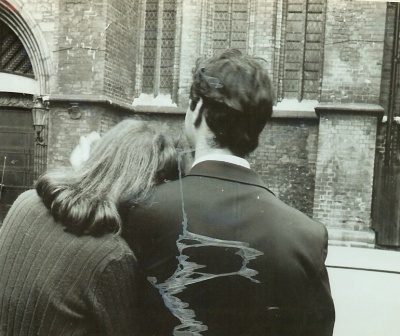
I was teaching Greek at Biola, and Becky and I were just about to purchase our first house. Our firstborn would arrive 2 years later. Now it is 30 years later. I have found peace in the loneliest times not only through acceptance of God's will for my life but also by giving my life, the good and the bad, wholly to Him to turn it into something He can use for the good of others.
Nick, your best days are ahead of you.
6:48 AM Special announcement for DBO readers in the greater Dallas area:
A group of Bible students will be studying Greek using my beginning textbook, starting in August. I will join them to personally teach chapters 1-6. Our joint sessions will take place on Saturday and Sunday, August 13-14, at a location east of the Big D. If you would like to join us, feel free to contact me and I will put you in touch with the course facilitator. After I leave, the class will continue its studies using our Greek DVDs. If you've ever wanted to learn Koine Greek, this may be just the opportunity for you.
Sunday, July 3
7:52 PM Speaking of the Gospels:
In this book we sought to build a picture of the historical origins of the Gospels based on the tradition preserved for us in the patristic writings. In particular, we were concerned with the attempt in the early church to explain the distinctive nature of the Gospel according to Mark. Two significant points have emerged from our study. First, Mark’s Gospel is best seen as the result of the cooperation between Peter and Paul to ensure that the unity of the early church was not impaired as a result of the publication of the Gospel of Luke alongside the Gospel of Matthew. In other words, the Gospel of Mark was never intended to be a rival of Matthew and Like, for its purpose was a very limited one, namely to provide the approbation necessary for Luke to find general acceptance in all the churches, both east and west. Second, the Gospel of Mark is best understood as Peter’s declaration that Luke is faithful to the apostolic tradition. The Gospel of Mark is therefore to be seen as the necessary link between the Gospels of Matthew and Luke. This fact alone explains the supposed contradiction between Clement’s assertion that Matthew and Luke were written before Mark and the canonical order Matthew-Mark-Luke, for it is possible for Mark to be regarded as both second and third – third in order of actual composition, and second in order of authority as the work of Peter.
From Why Four Gospels?
7:44 PM This week our Greek class will begin translating through the book of Philippians. Lots of good stuff here, even in the opening greeting. There are some pretty significant implications for church leadership in verse 2 alone. For a brief introduction to the letter, go here.
7:03 PM Studying Matthew? Check out these videos of Don Hagner, who authored the Word Biblical Commentary on the First Gospel.
6:28 PM Alan Knox's latest Scripture ... As We Live It is a real winner. Know what I think? I think Alan ought to publish a book by the same title, that's what I think.
6:22 PM Becky and I have never grown corn (successfully). Hence our gratefulness to Cal Berryhill of Berryhill Farm for the gift of fresh corn this morning.
Never has corn looked or tasted better.
He's invited us to stop by his farm tomorrow and pick as much corn as we want. That's an offer too good to pass up.
6:13 PM Thanks to the good services of Brian Small, we now have access to some excellent audio on the book of Hebrews. I listened to a couple of the files today, though to be honest I came away a bit disappointed at the way we "scholars" tend, I think, to engage in scholarly group-think. We are dismissive of certain views about the epistle because they do not fit the consensus opinio of the academic guild. It is precisely this kind of thinking I am seeking to disabuse my students of at the seminary. Seminary is a place to ask the hard questions, to turn stones over and look underneath them ("Look at that ugly thing scampering away over there -- a proponent of Pauline authorship!"), to in fact learn it's A-Okay to question the Magisterium (yes, we Protestants have ours too). Odd, but many of the views I hold to today I hold in contrast to what I was taught in seminary as being the "firm conclusions of biblical scholarship." (My views about Gospel origins, for example. Translating the Fathers for myself was like a cannon shot cracking across my own little theological bow, jolting me back to some kind of reality.) Many Christians are spiritually impoverished for want of genuine curiosity -- and a failure to understand and appreciate that genuine scholarship is never based on majority vote (despite what our friends at the Jesus Seminar might want us to think). To put the matter another way, too many Christians are suffering from interpretive shellshock. They have been blasted and blistered into holding to this or that view, but often without a factual basis for what they hold to be true. I am, undoubtedly, guilty of doing this with my own students, which is yet another reason why they should pay attention to the voice of others as well as my own.
6:44 AM I awoke this morning at 5:00 am, burdened to pray for brother Youcef in an Iranian prison. Phil. 2:1 tells us that "The Spirit has brought you into fellowship with one another." What a powerful truth! (The Greek has only koinonia pneumatos, "fellowship of the Spirit," but the above rendering is, in my opinion, exactly what Paul meant -- another reminder that "literal" does not always mean "accurate.")
What is a
Christian? Seneca once said to Nero, "To live is to be a soldier." For
Christians, to live is to be a soldier of Jesus Christ. And not just His
soldier, but fellow-soldiers with every other Christian who is
fighting the good fight of faith. The picture of a soldier is
appropriate. When I think of people like Youcef I think of
determination, self-discipline, dedication, devotion. "No one in
military service gets
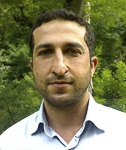 entangled
in civilian affairs," wrote Paul in 2 Tim. 2:4. "Instead, his single aim
is to satisfy his enlisting officer." Notice that last phrase! As far as
Paul was concerned, things like wealth or leisure or success or health
or even life itself were secondary issues. These things were expendable.
The only thing that mattered was that he remained faithful to Christ,
that he pleased Him. As Vance Havner once said, "We do not have to live;
we only have to be faithful."
entangled
in civilian affairs," wrote Paul in 2 Tim. 2:4. "Instead, his single aim
is to satisfy his enlisting officer." Notice that last phrase! As far as
Paul was concerned, things like wealth or leisure or success or health
or even life itself were secondary issues. These things were expendable.
The only thing that mattered was that he remained faithful to Christ,
that he pleased Him. As Vance Havner once said, "We do not have to live;
we only have to be faithful."
In Heb. 13:3 we are commanded: "Remember those who are in prison, as though you were in prison with them. Remember those who are suffering, as though you were suffering as they are." You say, "But I've never suffered for Christ. Suffering is just not a part of my Christian vocabulary." Well, you can suffer. This very day. You can suffer for Christ by sharing in the sufferings of your brother Youcef. In the Sermon on the Mount, Jesus says, "Blessed are you when people persecute you and utter all kinds of evil against you on My account. Rejoice and be glad, for great is your reward in heaven." Today in Iran, every kind of evil is being said against brother Youcef simply because of his stand as a Christian. Suffering of this kind forces us to stop trusting in our own courage, ability, or power and to trust instead in the all-sufficient grace of God. If Youcef shares in Christ's sufferings now, so he will share in Christ's glory in the world to come. What is more, to suffer is to know the assurance of Christ's presence in our life because we realize that even the most violent persecution only comes under the hand of God and can therefore be turned to His praise.
At Bethel Hill Baptist Church this morning, we as a congregation will be taking a moment to remember brother Youcef and his family before the throne of grace. Becky has prepared a handout -- a simple reminder to pray, a reminder that when one part of the Body suffers, all suffer with it. Might I suggest that we make today, Sunday, July 3:
Youcef Nadarkhani Sunday
Might I also be so bold as to suggest that you copy this report and distribute it among the believers wherever you are gathered this morning, all over the world? Let us take our place as fellow-soldiers. And, as we pray for Youcef, let us pray for ourselves -- that God would enable us to recognize that if we are genuine Christians, the going will get tough. Let us acknowledge that "it is through many difficulties that we must enter the kingdom of God" (Acts 14:22).
It is almost impossible for me to grasp what Youcef is enduring today in Iran. Here is a brother who would gladly give his life for Christ. He cannot hold back. The flame for Christ in his heart cannot be extinguished. In a similar fashion, may Christ's love grip our hearts today, impel us, propel us, grant us one magnificent obsession:
To know Him and to make Him known!
Saturday, July 2
4:16 PM Great news! Becky informs me that we have now received one half of the funds needed to build the meeting hall for God's people in Zobechame. Only $20,000 remains. You may recall that the Zobechame church building is one of our 2011 Ethiopia Focal Points. Our heartfelt thanks to all who have joined us in the cosmic struggle to reach the Muslims of Alaba, Ethiopia for Christ.
3:43 PM A friend of mine's last tweet was dated May 28. Time to play Taps. Twitter is dying.
3:38 PM Wheaton College announces openings in both Old Testament and New Testament.
3:14 PM Missionary quote of the day:
Should I have a thousand pounds, China can claim them all; should I have a thousand lives, I would not spare one not to give to China.
This was China Inland Mission founder Hudson Taylor's amazing response following the 1900 Boxer Rebellion in China, when 230 Western missionaries were brutally murdered by Chinese rebels. After the rebellion had been put down, the Western powers demanded compensation from the Chinese for the lives lost at the hands of the rebels. Taylor rejected any compensation.
That, in a nutshell, is the Gospel.
3:08 PM I just saw it again. Another pastor quoting the Greek word hilaron in 2 Cor. 9:7. You know the pitch. "The Greek word here is the source of our English word 'hilarious.' God loves a hilarious giver!"
I guess that means we should start playing laugh tracks during the offering.

Let us continually ask God to preserve us from etymologizing.
9:43 AM The New York Times is reporting that the Ethiopian government has taken action against the mob that attacked Christians last March:
A court has sentenced 558 people to prison terms ranging from six months to 25 years for attacks on Christians that displaced thousands and led to the burning of 69 churches.
I'm praying that the believers in this area will begin visiting those sentenced, bringing them the Good News of God's love and forgiveness, even for one's enemies. Jesus calls us to a love that is scandalous in the eyes of the world!
8:15 AM Quote of the day (Iranian pastor Youcef Nadarkhani):
Many attempt to flee from their spiritual tests… [but] no one will be victorious by escaping from them, but with patience and humility he will be able to overcome all the tests and gain victory. Although heaven and earth will fade, His word will still remain.
What a precious brother in Christ! Let's keep praying for Youcef as he faces the death penalty merely for being a follower of Jesus.
7:12 AM Vignettes of life on the farm:
1) Becky greets her pets on our way to check the mailbox last night. Quite a lovely routine, that.
2) These books arrived yesterday for -- guess who? -- Nigusse! These are the 3 required textbooks in Dave Beck's hermeneutics class. Nigusse already has the books he needs for Greek 1 and New Testament Introduction, since his dad is teaching those courses.
3) Every family, I suppose, has its strange rituals. One of ours is to let the dogs lick our plates and clean our bowls after supper. That way we don't have to use the dishwasher. (Kidding!) The dogs always seem to know when I am about to open the back door to let them in.
4) Finally, here's the view from our front porch this morning as B. and I sipped coffee and talked about our plans for the day. Loverly.
Well, so much for life at Bradford Hall. Thanks for stopping by!
Friday, July 1
6:23 PM Finally found it. Derwent, that is. It was the summer home of the Robert E. Lee family in 1865, just before Lee accepted the presidency of Washington College in Lexington, VA. After the war, Lee wanted to purchase a small farm and derive sustenance from it. His dream came true two months after Appomattox, when the Cocke family of Cumberland County offered him their small two-over-two cottage on Cocke land in Powhatan County.
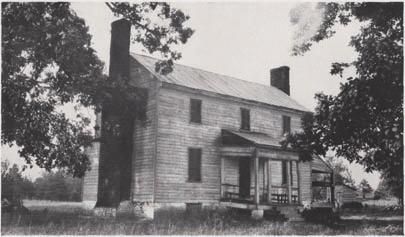
Lee gladly accepted the offer. Once settled in, he rode about the countryside on Traveler talking to farmers and storekeepers. Lee became a familiar figure in the community and, I am told, even attended Muddy Creek Baptist Church just up the road from Derwent. (Interesting: Lee was an Episcopalian.) Here is what Derwent looks like today.
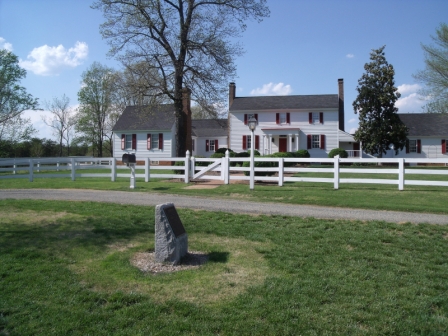
It is about a 3-hour drive from our farm in Mecklenburg County. Will make a nice all-day outing later this summer.
Virginia is for history lovers!
11:54 AM This is an important month for the Dave Black family. On July 25th Becky will have her next CT scan. As you know, she has several tumors in her lungs, the result of metastatic uterine cancer. The doctors are leery of continuing Cyber Knife treatments if there is any possibility that the other spots in her lungs are cancerous. At any rate, her scan is scheduled for 1:00 pm, and then we will meet with her radiologist at 3:30. Viewing our cancer journey thus far, I marvel at the wisdom and love of our God. Gale force winds have buffeted us, but every storm has wrecked us upon the Rock, Jesus Christ. In the meantime, your love and prayers have meant the world to us. Thank you.
8:02 AM Reading Thomas Hudgins' recent posts on the role of mentoring in education reminded me of my Greek professor at Biola College. Harry Sturz was the head of the Greek Department at Biola. He was unfailingly thoughtful and kind. He took time for me, a hopeful Greek teacher (and more or less booted me into the classroom). He kept an open door for anyone and everyone. He did not do it merely unselfishly. He did it without any thought of self at all.
I'm hardly a Harry Sturz. I stumble along, achingly trying to catch up. I am a Greek teacher. So what? Is not God calling Greek teachers to forsake selfishness and to cease to live for themselves? I would love to be able to sit down with Harry Sturz today, ask him, "How am I doing? On the curve of daily life, is my teaching counting for anything?" I imagine he would say, "Dave, it's all about grace. No inadequacy is great enough to drain dry the ocean of God's grace. Rest in Him. Find the courage to humble yourself. Remember that He loves you inexorably. Do not look for dramatic results. There may be no discernable effects from your teaching. Let God reveal the results to you in His time and way."
God's honing methods in our lives vary, but surely He uses mentors to shape us. I hope and pray you have had such a mentor in your life. If you have, consider yourself blessed.
6:26 AM Katy Brown, erstwhile missionary to Ethiopia, recently traveled south of the border. She has now published her post-trip report. It's called Back from Mexico. Way to go, Miss Katy!
6:22 AM Want a bibliographical guide to New Testament exegesis? Denver Seminary has an excellent one (.pdf).
6:06 AM My Th.M. and Ph.D. students will sometimes ask me how firm the page limitations are with our theses and dissertations here at SEBTS. "How many pages am I permitted to go over?" With these dear students in mind, may I share with you the following story -- a most appropriate one too, seeing it is the Fourth of July weekend?
One day John Adams and Ben Franklin were going over Thomas Jefferson's draft of the Declaration of Independence.
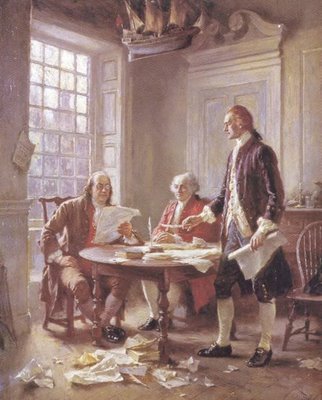
Franklin paused, looked up over his spectacles, and said he was reminded of a hatter who had just opened a store in Philadelphia. The merchant wanted to post an appropriate banner above his store and so he constructed a sign that included a drawing of a hat. The sign read:
John Thompson, Hatter, Makes and Sells Hats for Ready Money
As he showed his creation to his friends, one of them pointed out that the word "hatter" seemed redundant, since the sign also noted that he made hats. Another friend noted that the word "makes" should be omitted because the customers would not care who actually made the hats. Another stated that he thought the words "for ready money" were superfluous, as everybody who purchased a hat would expect to pay for it. These changes were made, and the sign now read:
John Thompson Sells Hats
Then a friend said, "Sells hats? Why, no one would be expected to just give them away. Moreover, since there is a drawing of a hat on the board, why use the word at all?" Hence the merchant reduced the sign to:
John Thompson

"He has been," added Franklin, "rather successful."
I recall the first article I ever published in the Journal of the Evangelical Theological Society. At that time the editor was Ron Youngblood, and he told me, upon receipt of my manuscript, that he would publish it -- if I reduced its length by one third. I can assure you, the essay was far more readable after I had employed the axe on it.
Students, kindly remember that conciseness is a virtue in writing, and that "Less is often more."
5:35 AM Quote of the day (Why Theological Education?):
Not every Christian or even every Christian leader needs to learn Greek and Hebrew to have an effective ministry, but I don't theological study is really serious if it does not ask you to learn at least one of these languages. Given the choice, most people would NOT learn even Greek. Don't take the easy option - because serious study of the Scripture by someone who would teach God's people demands the harder path!
